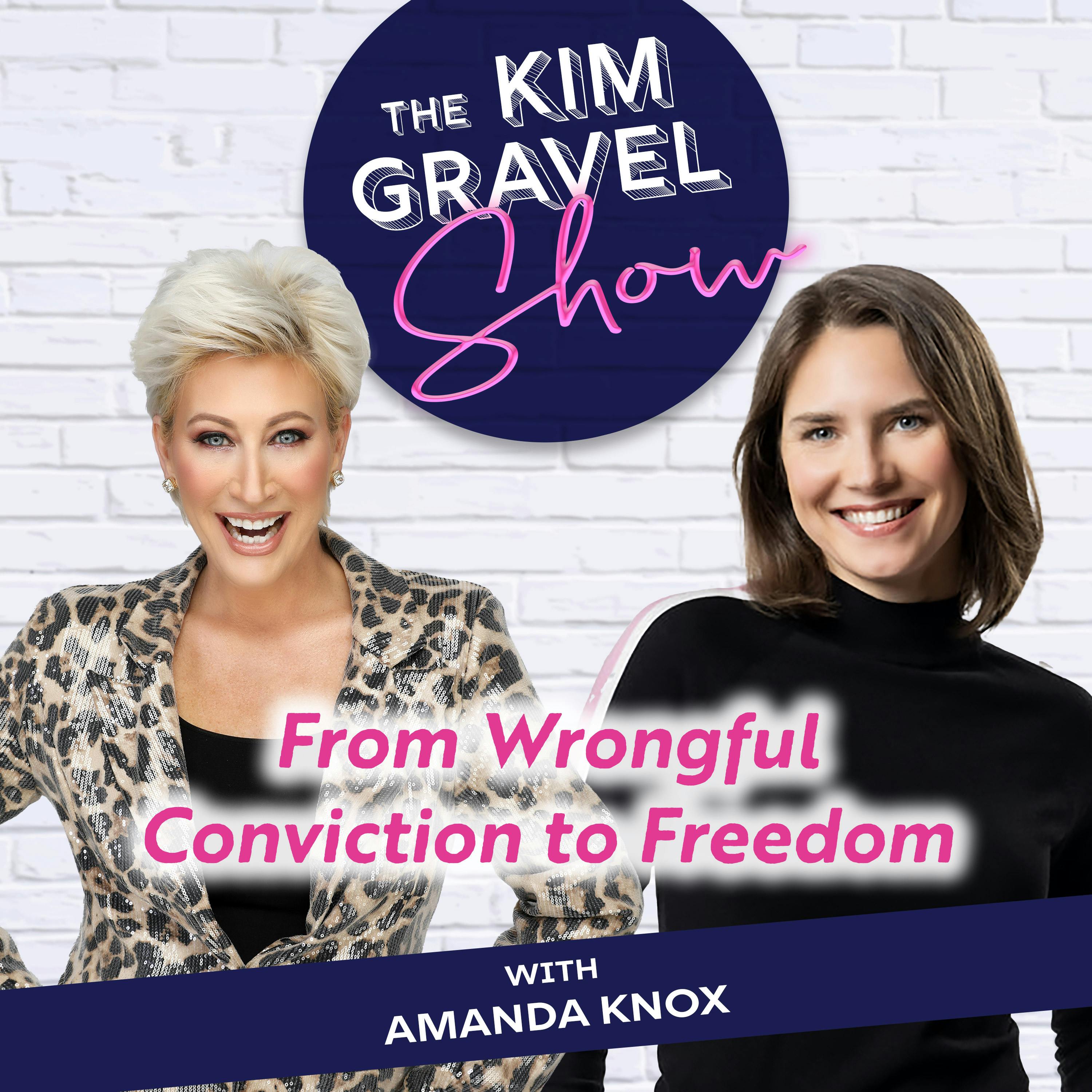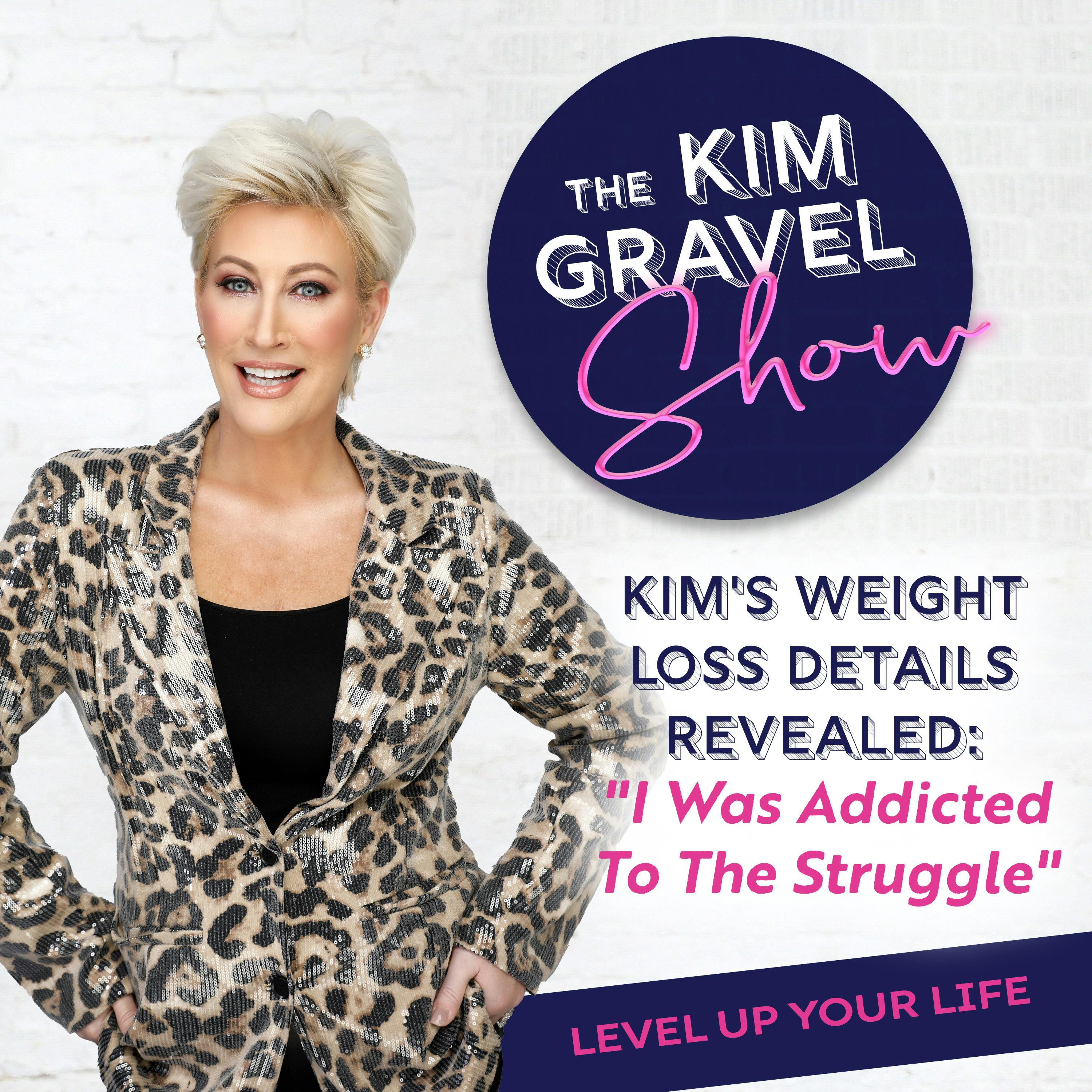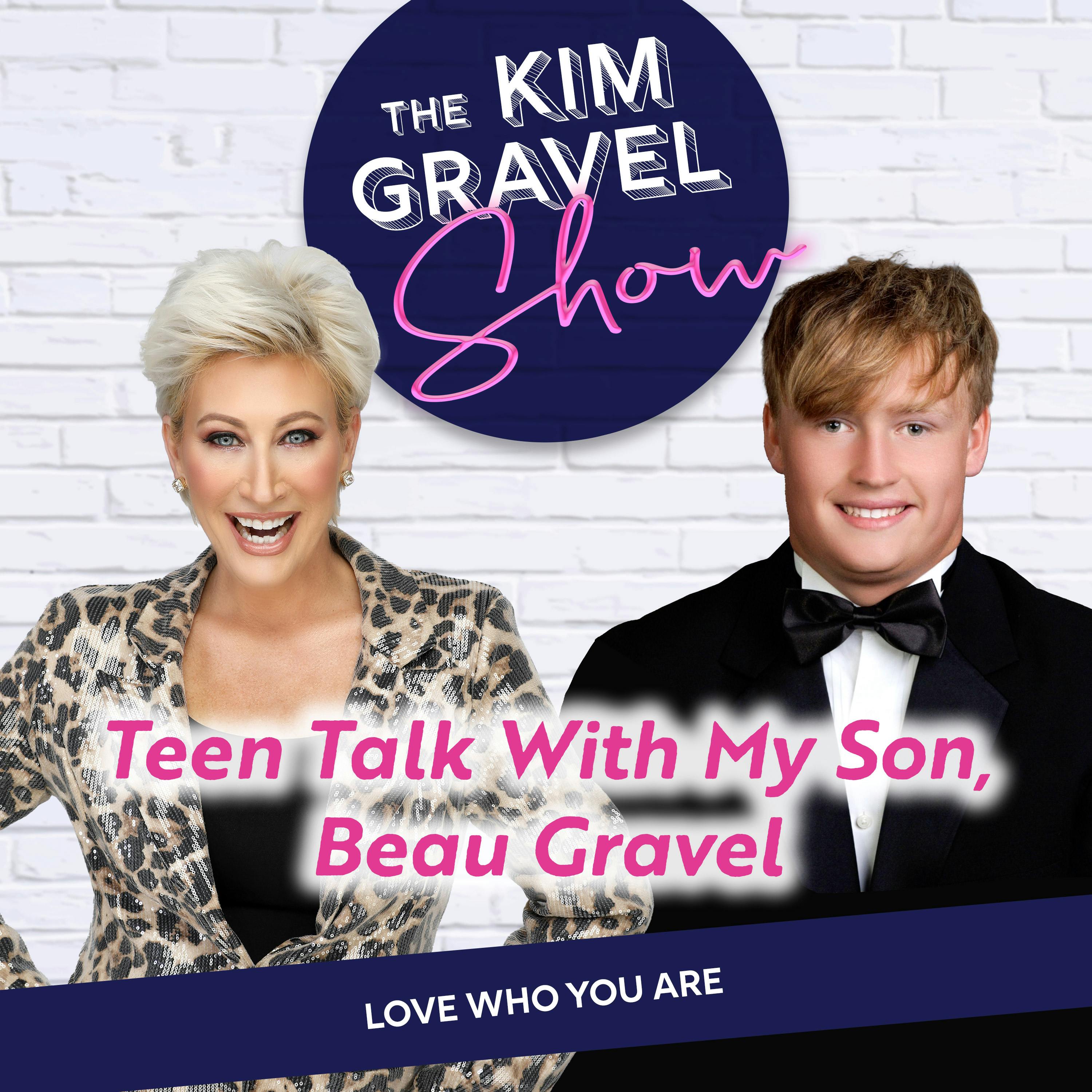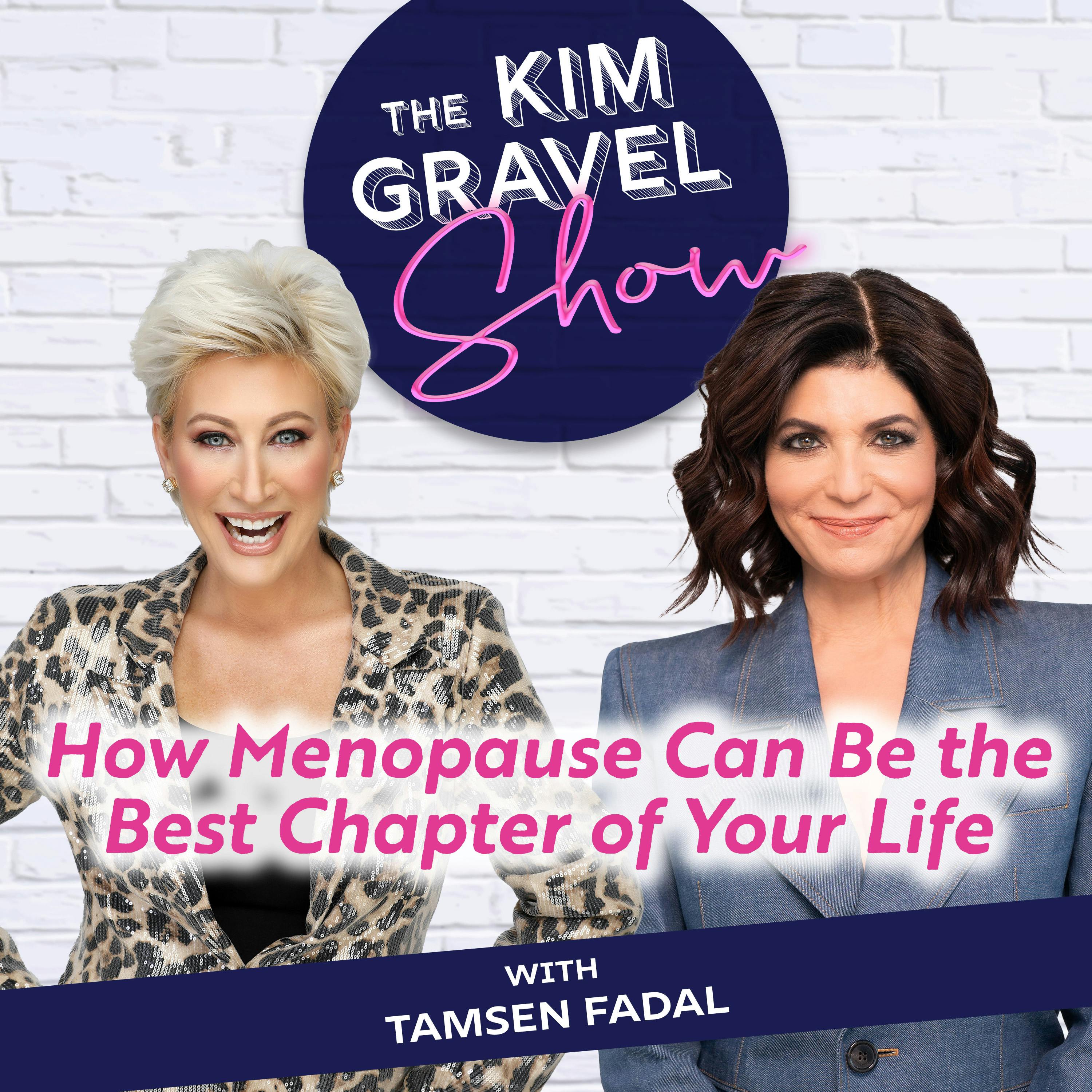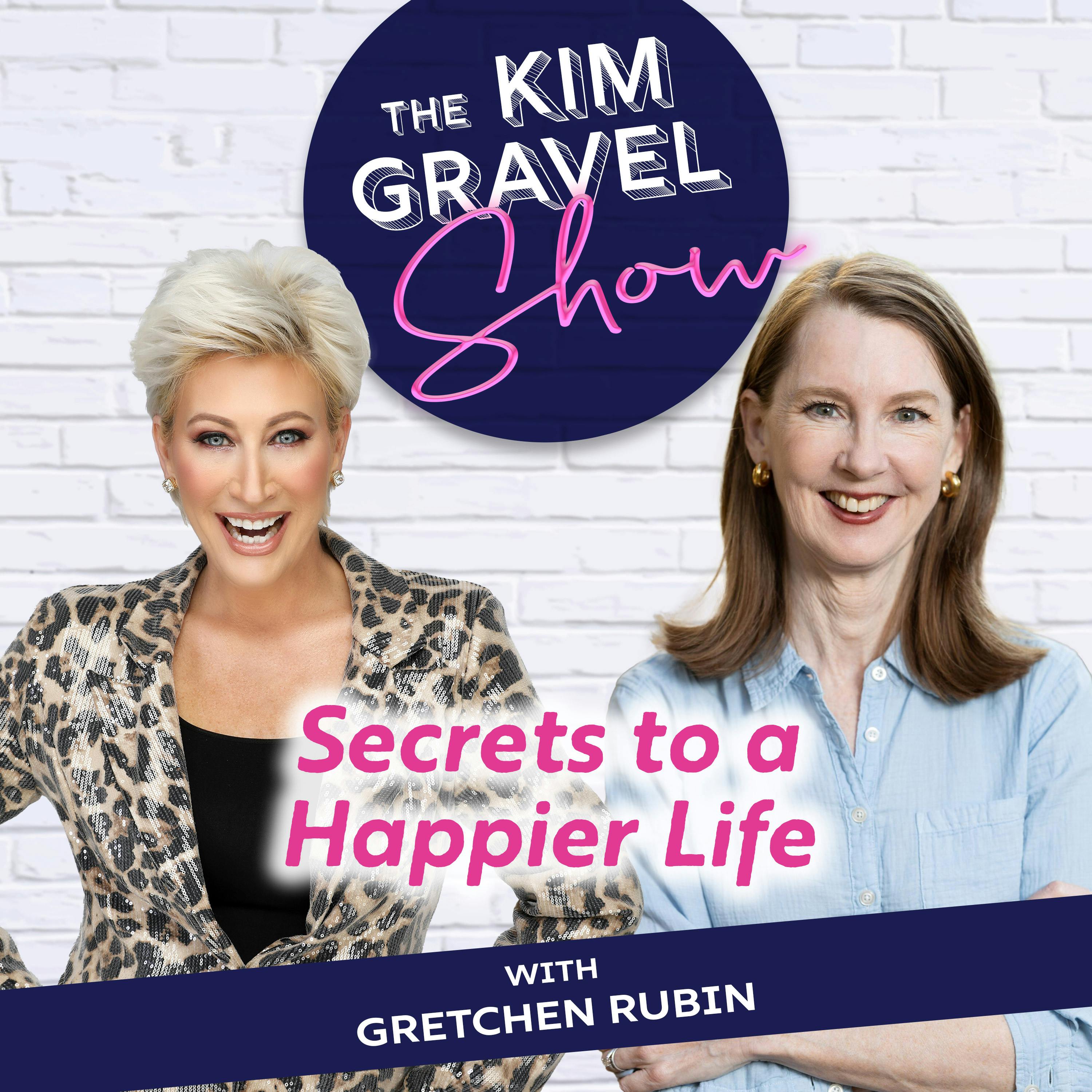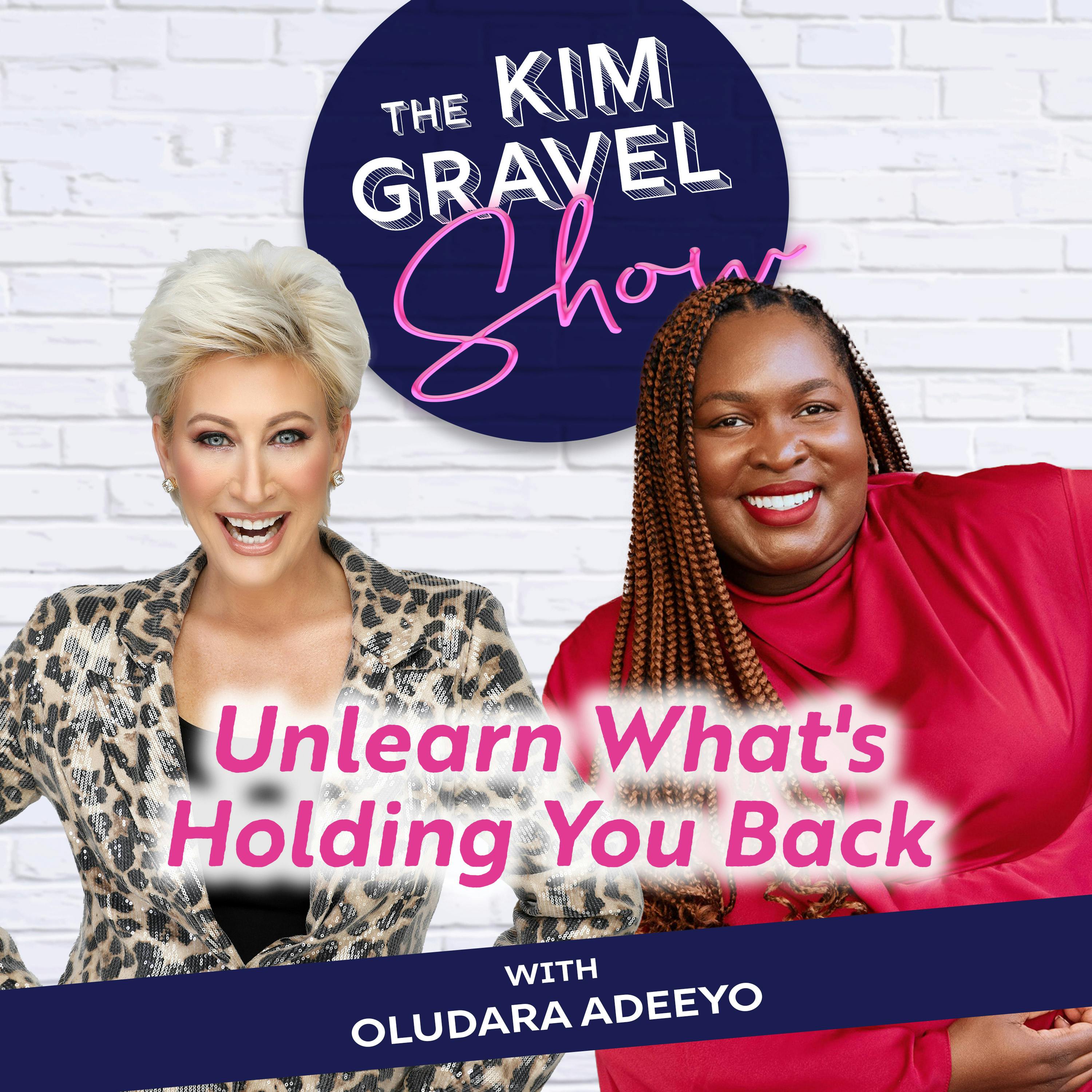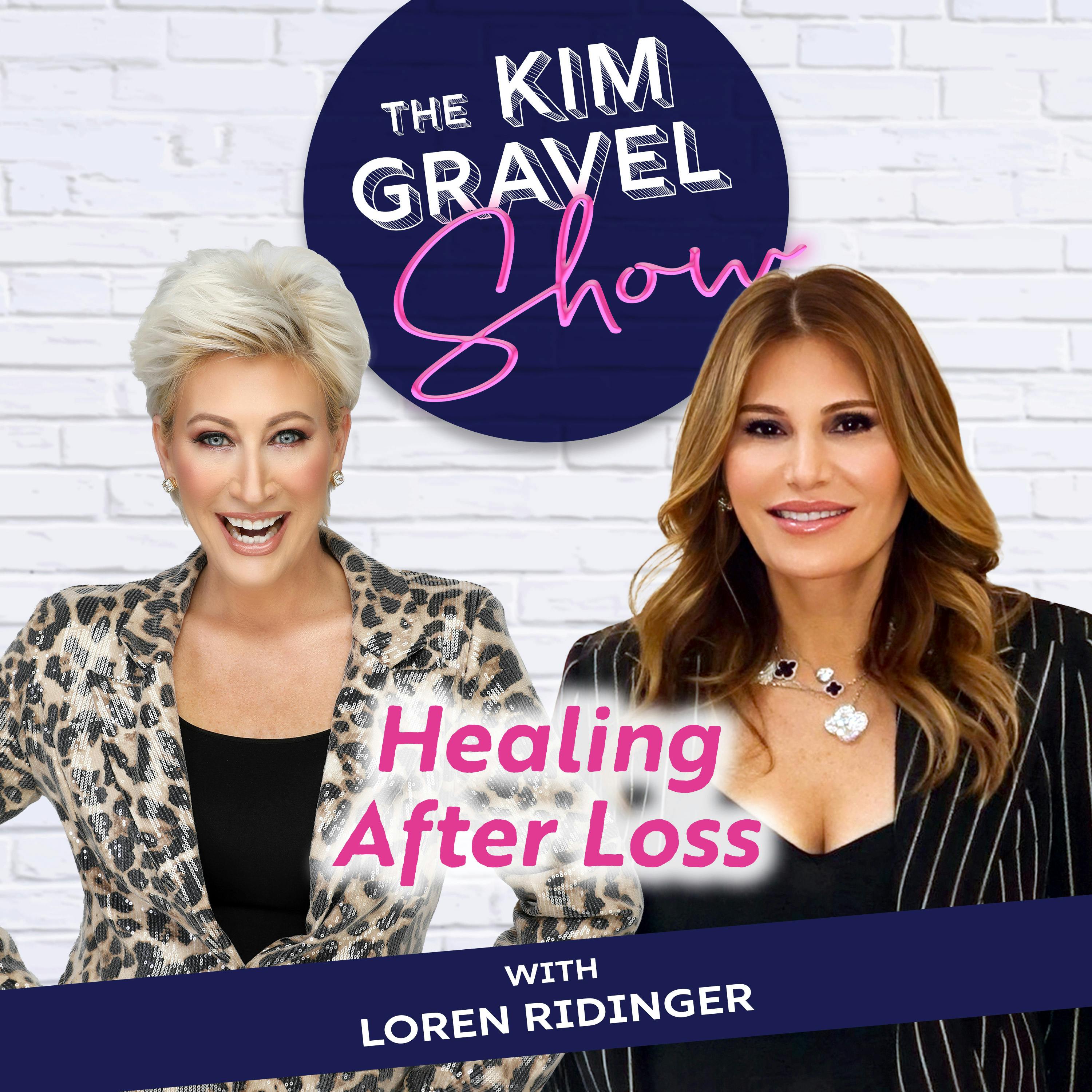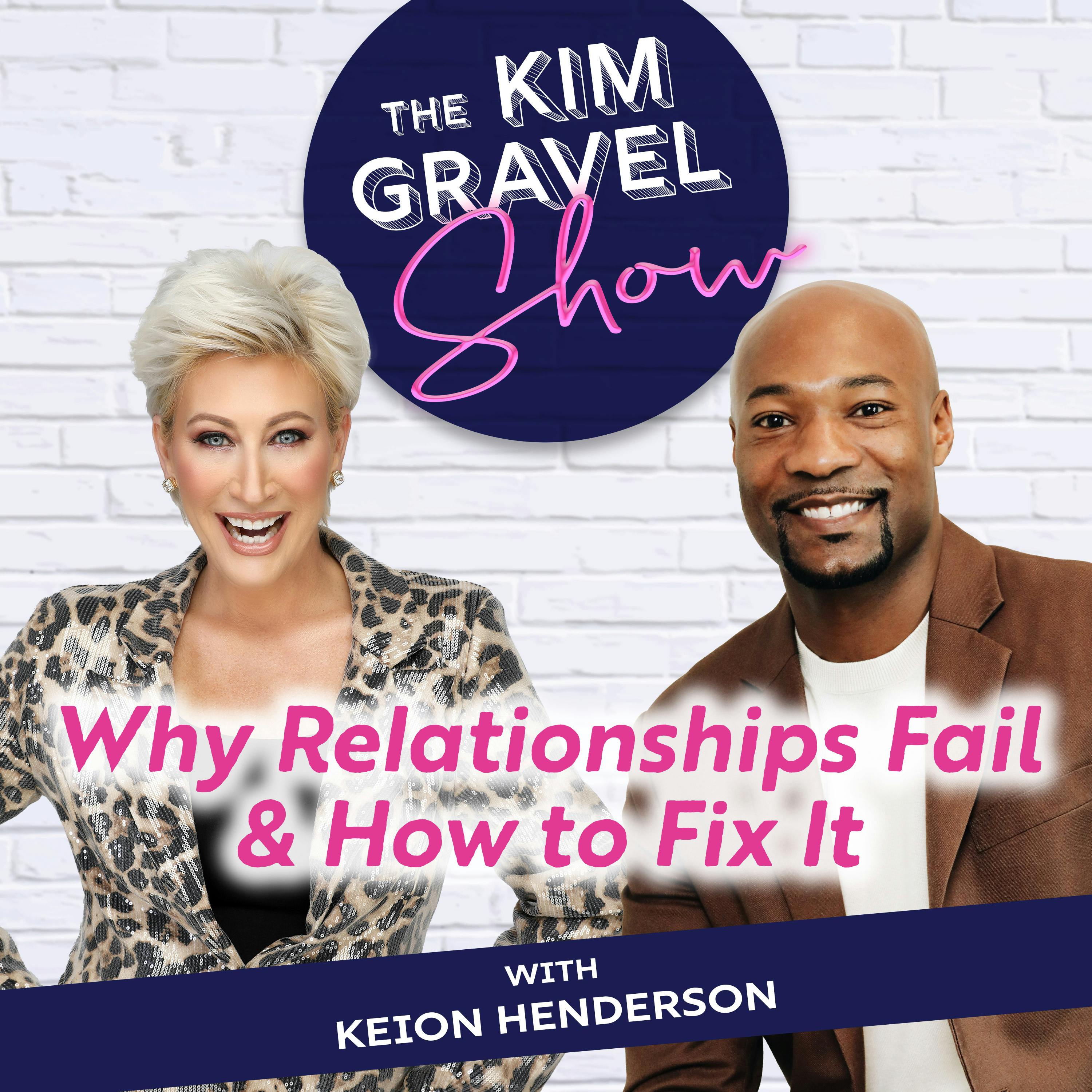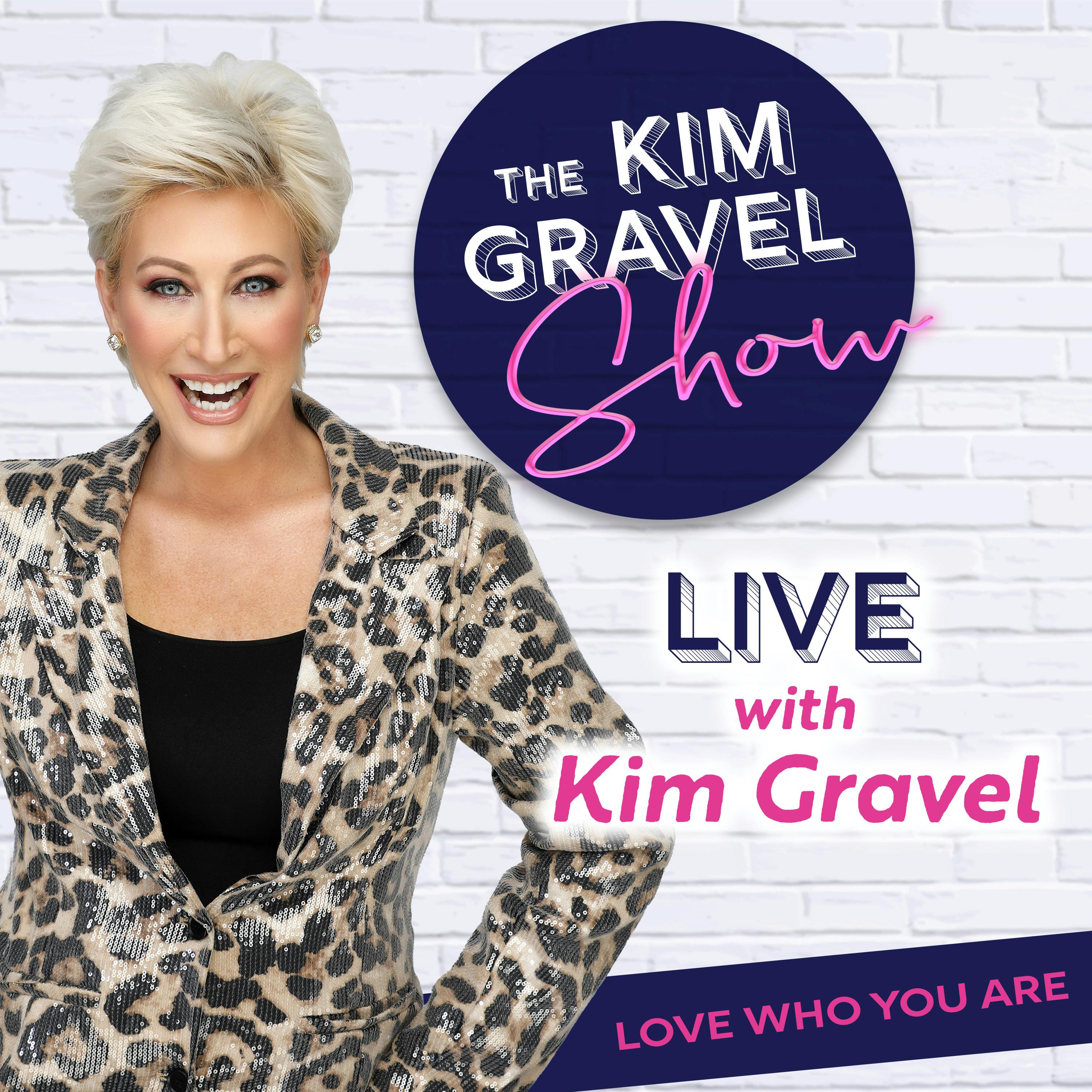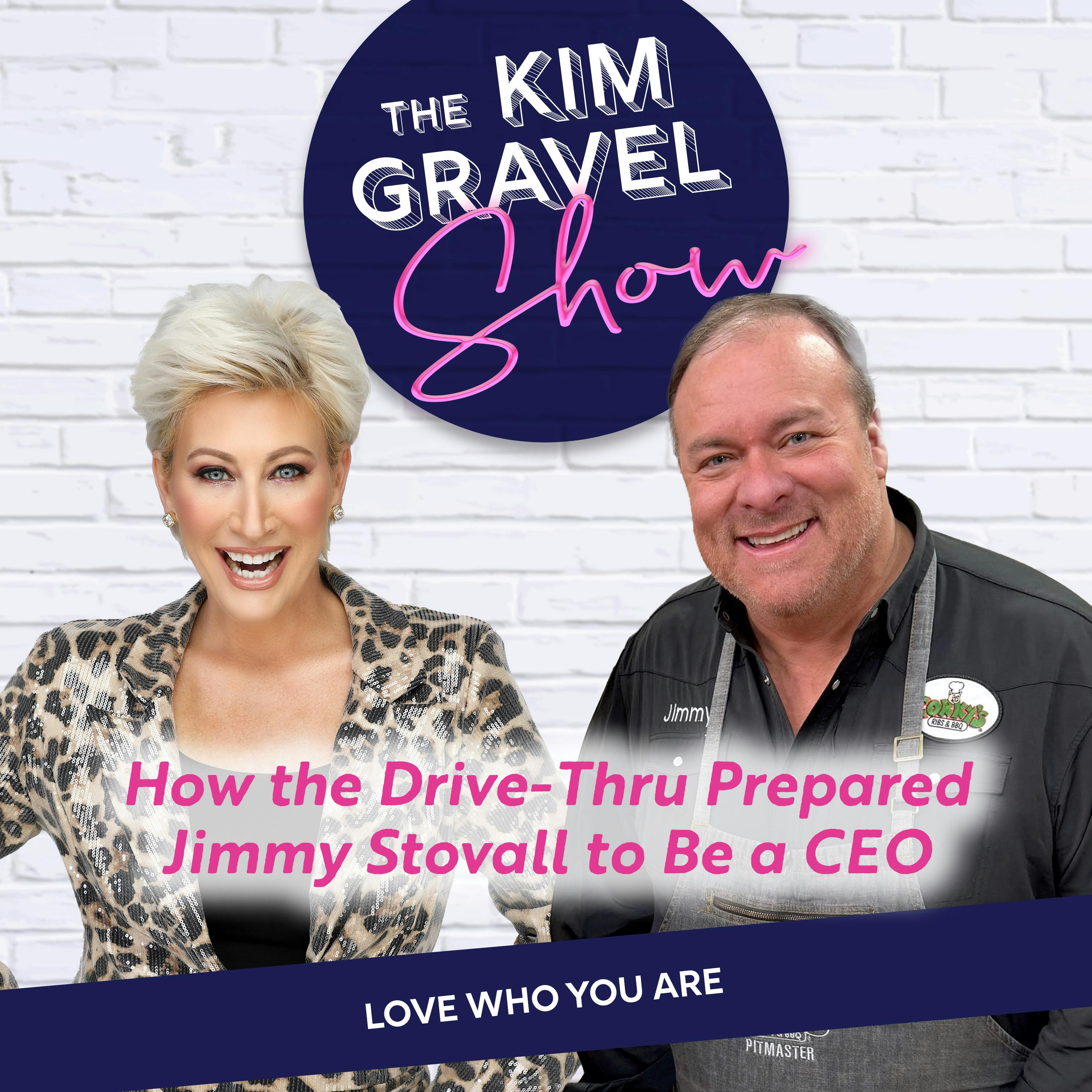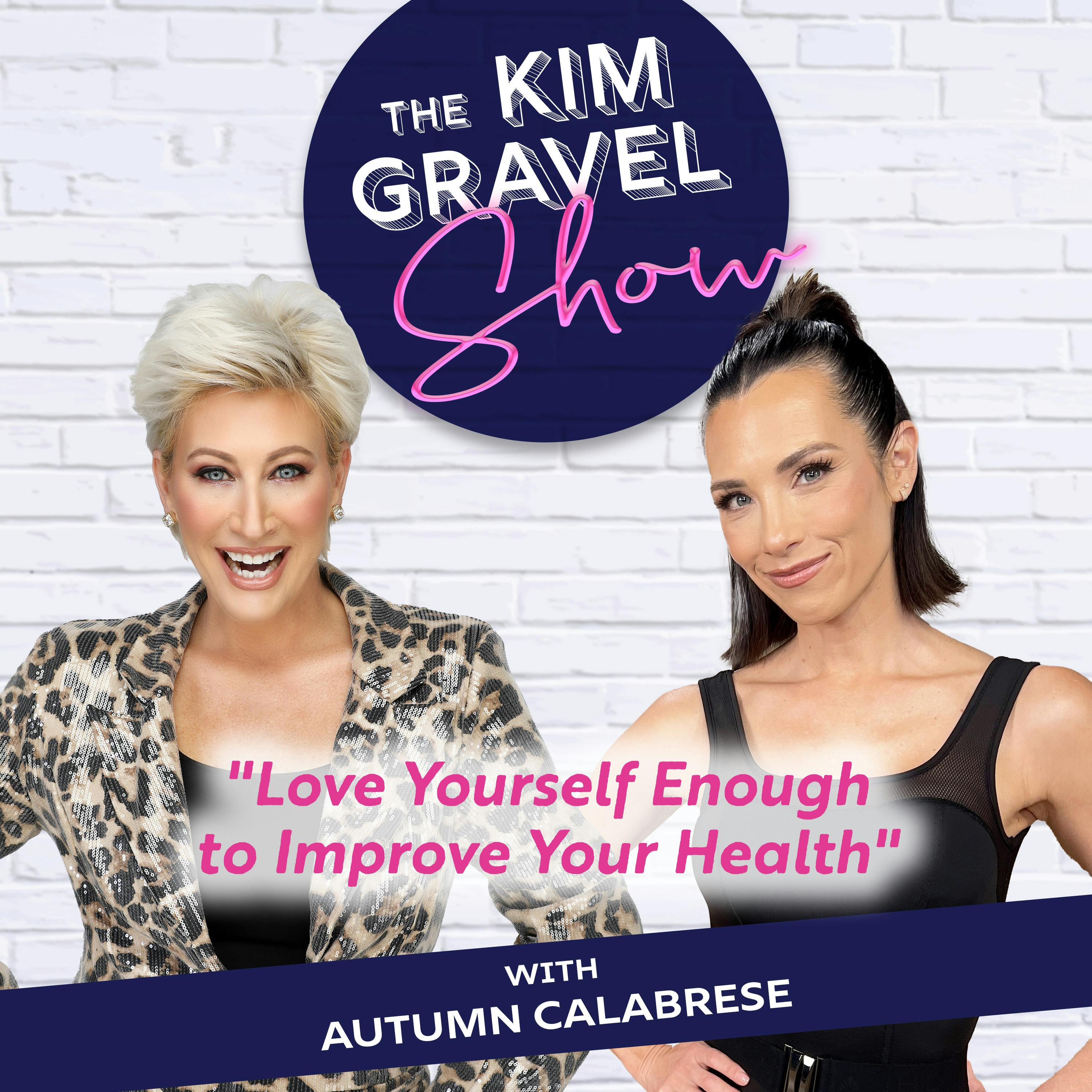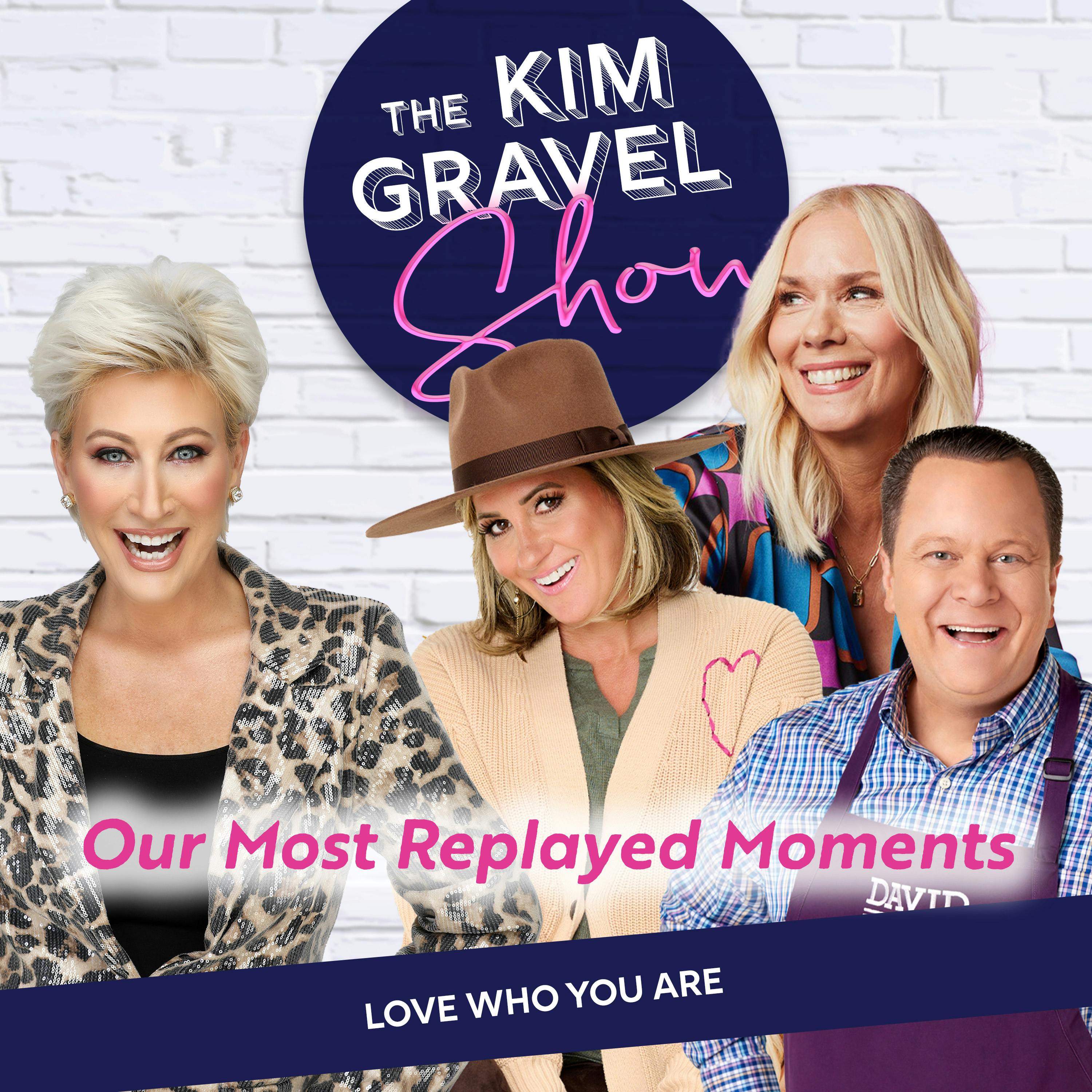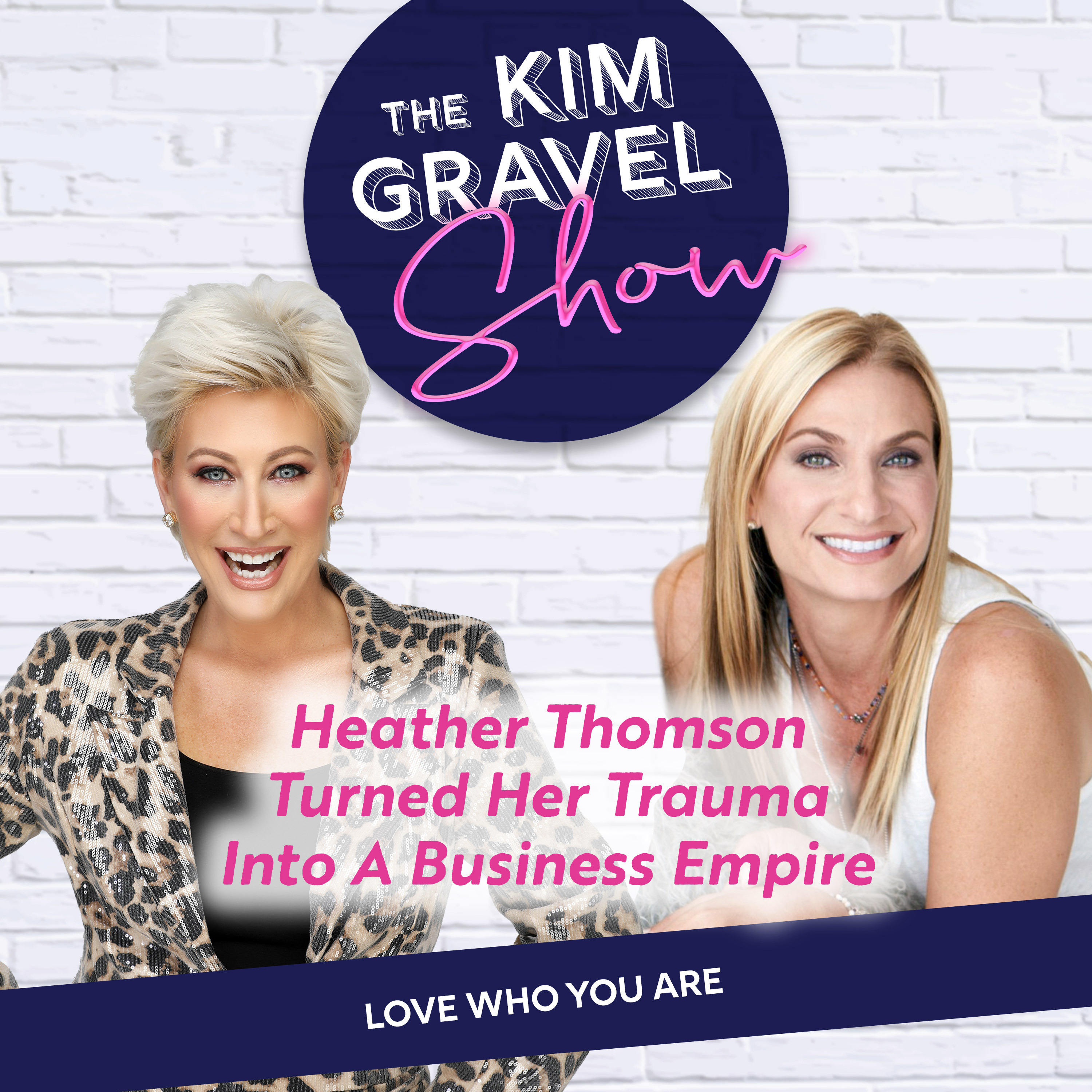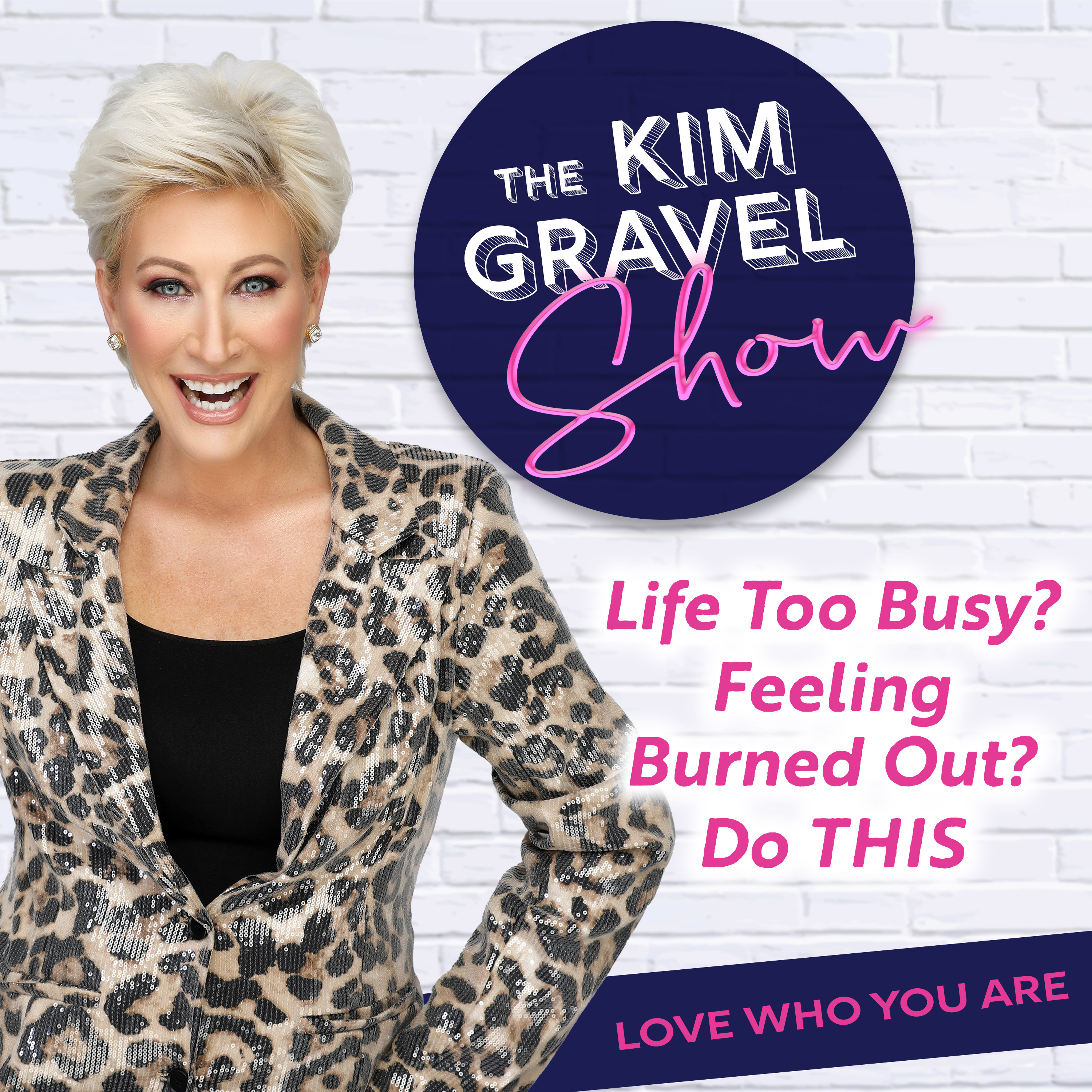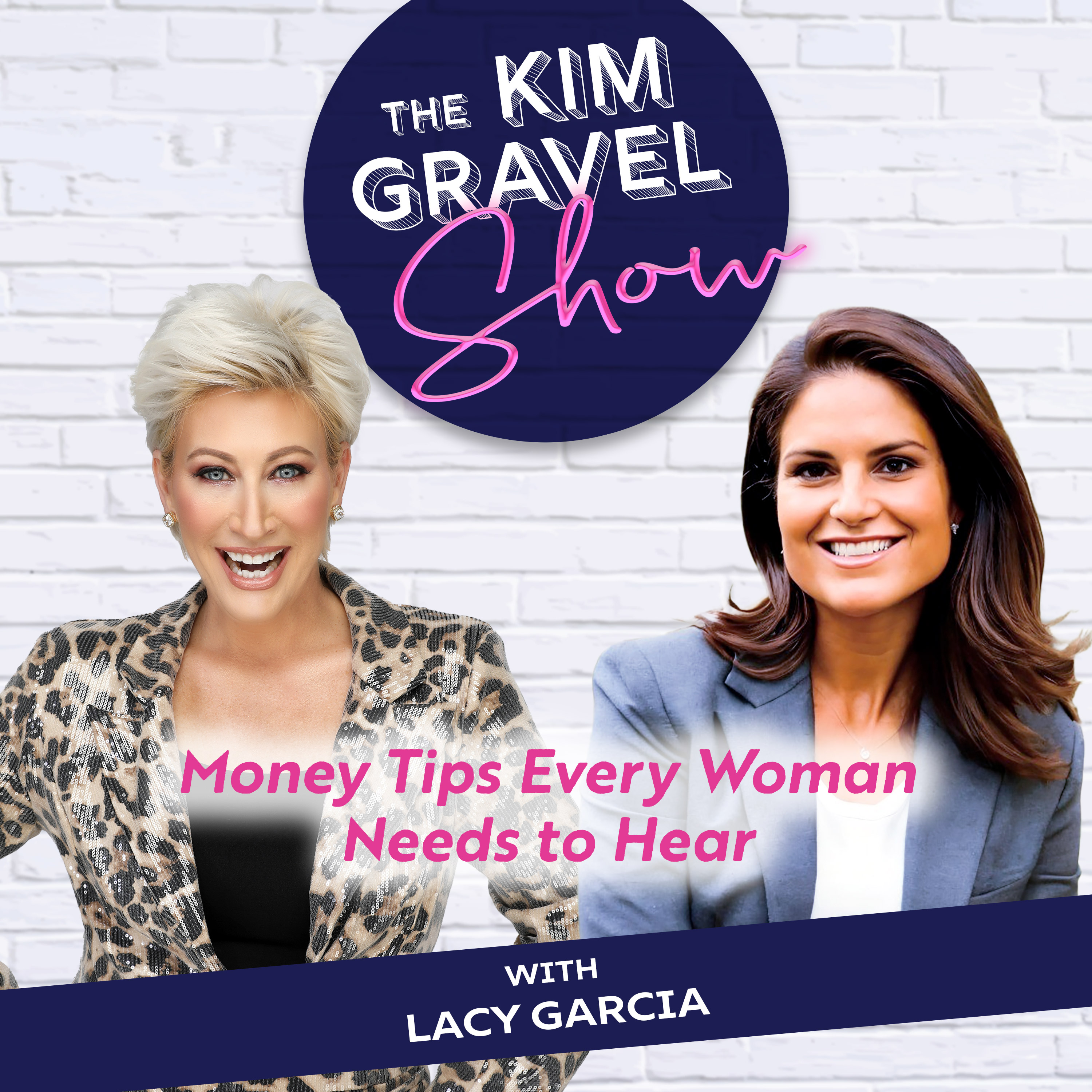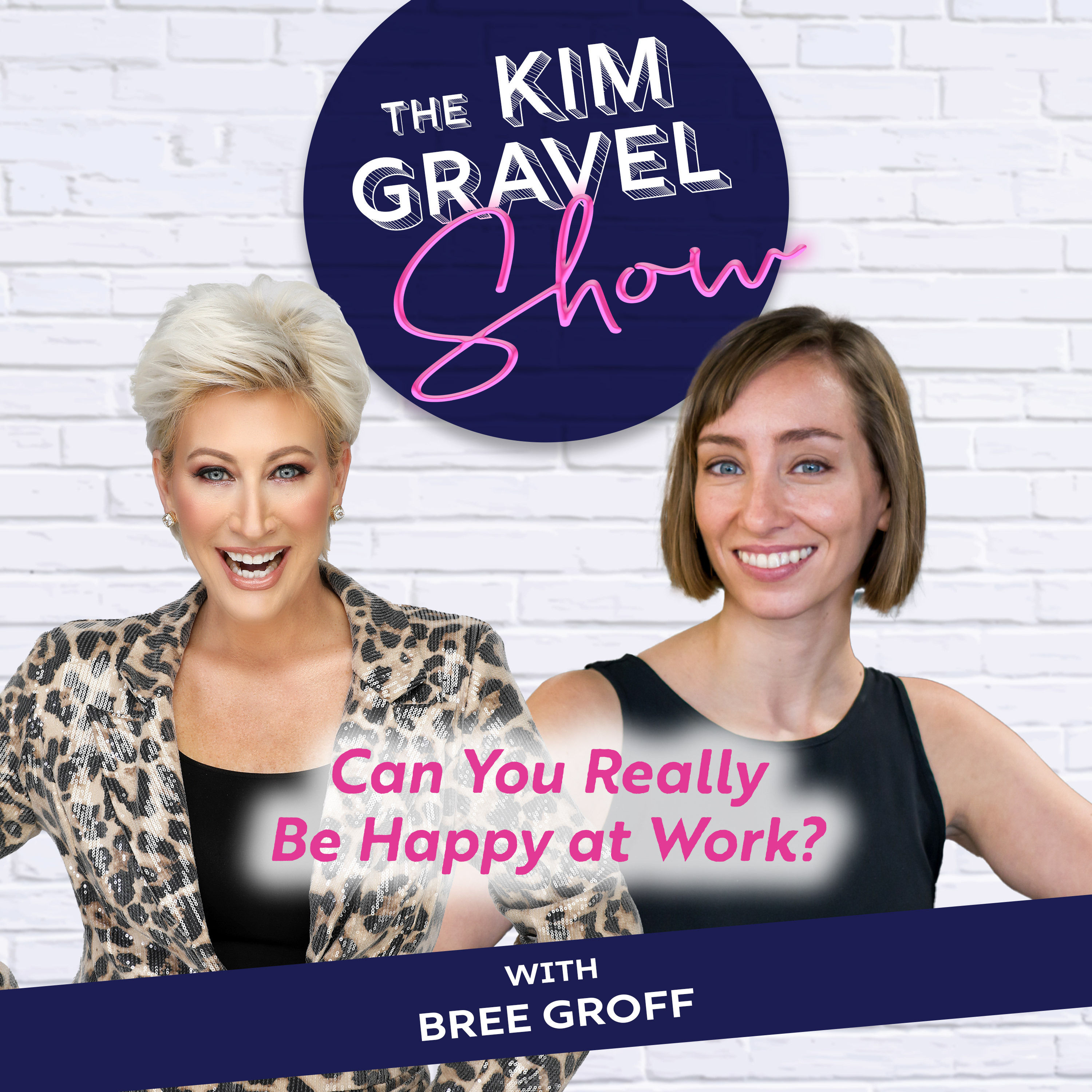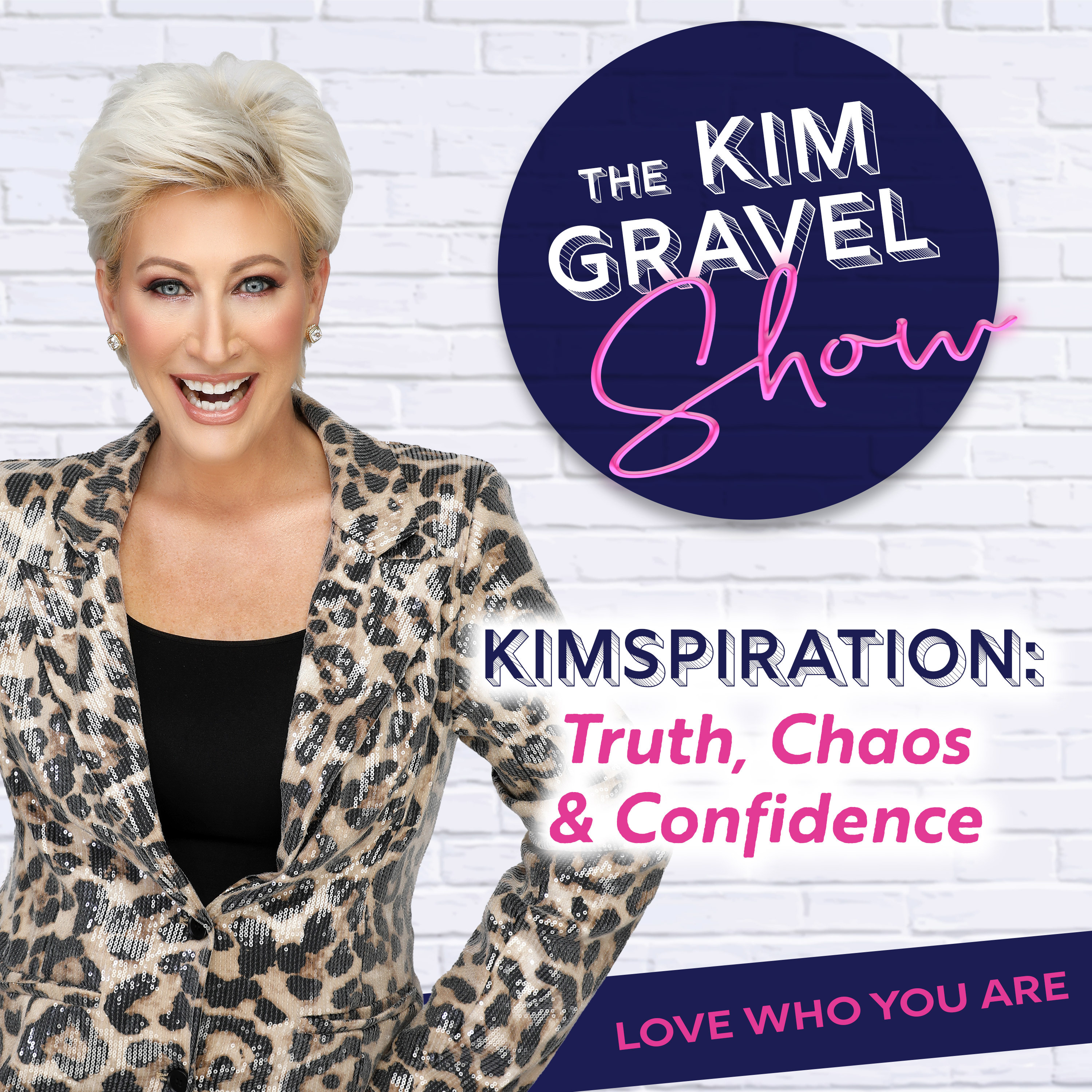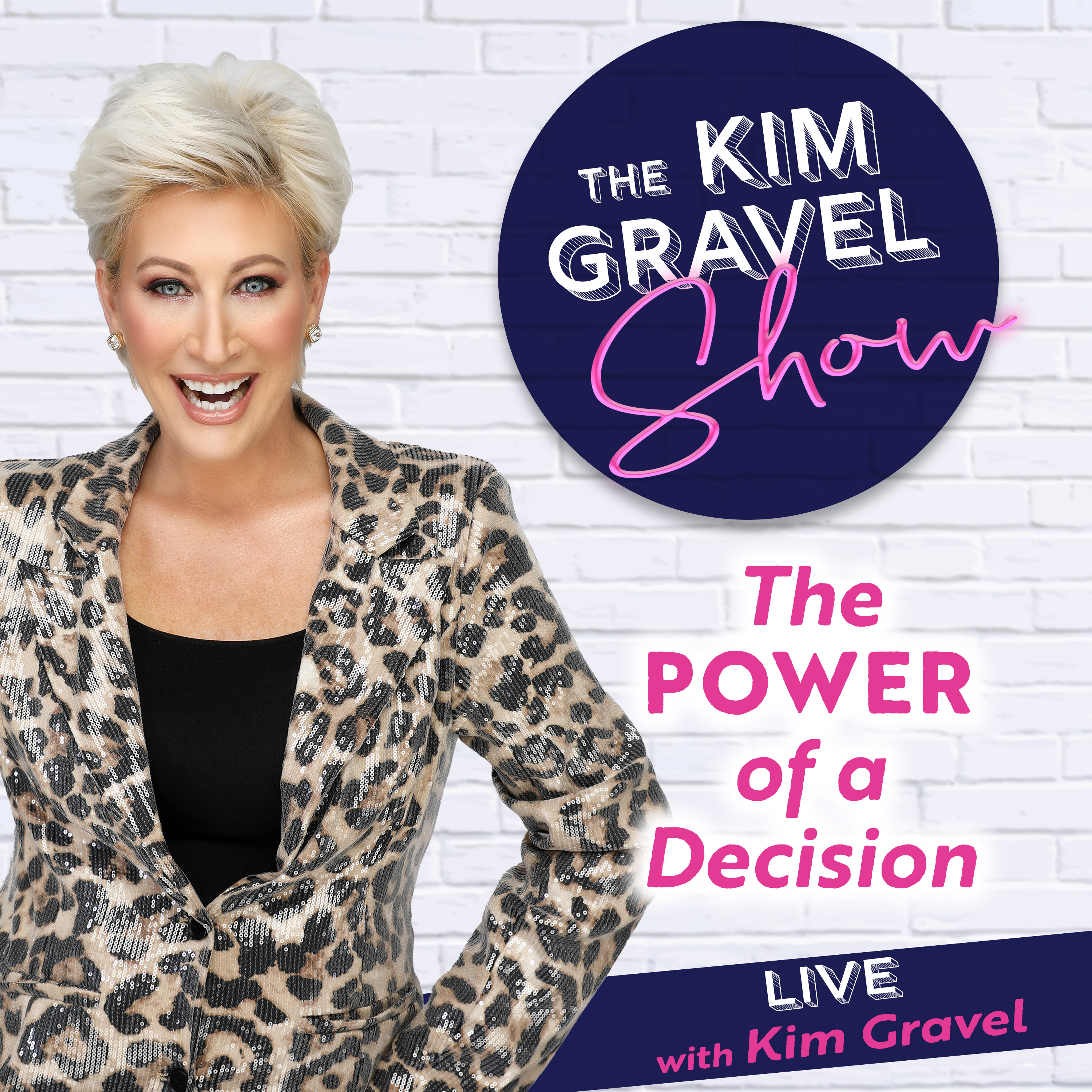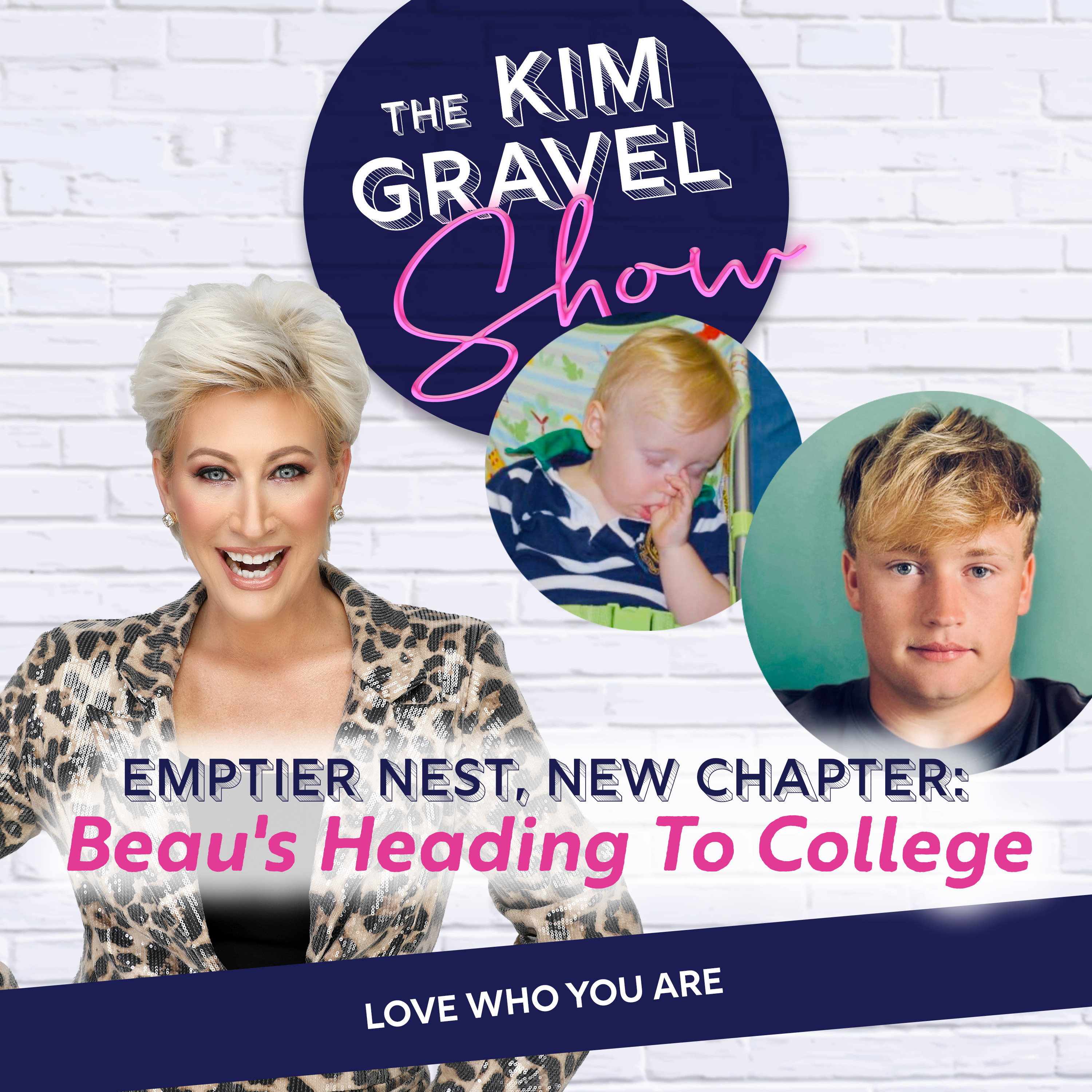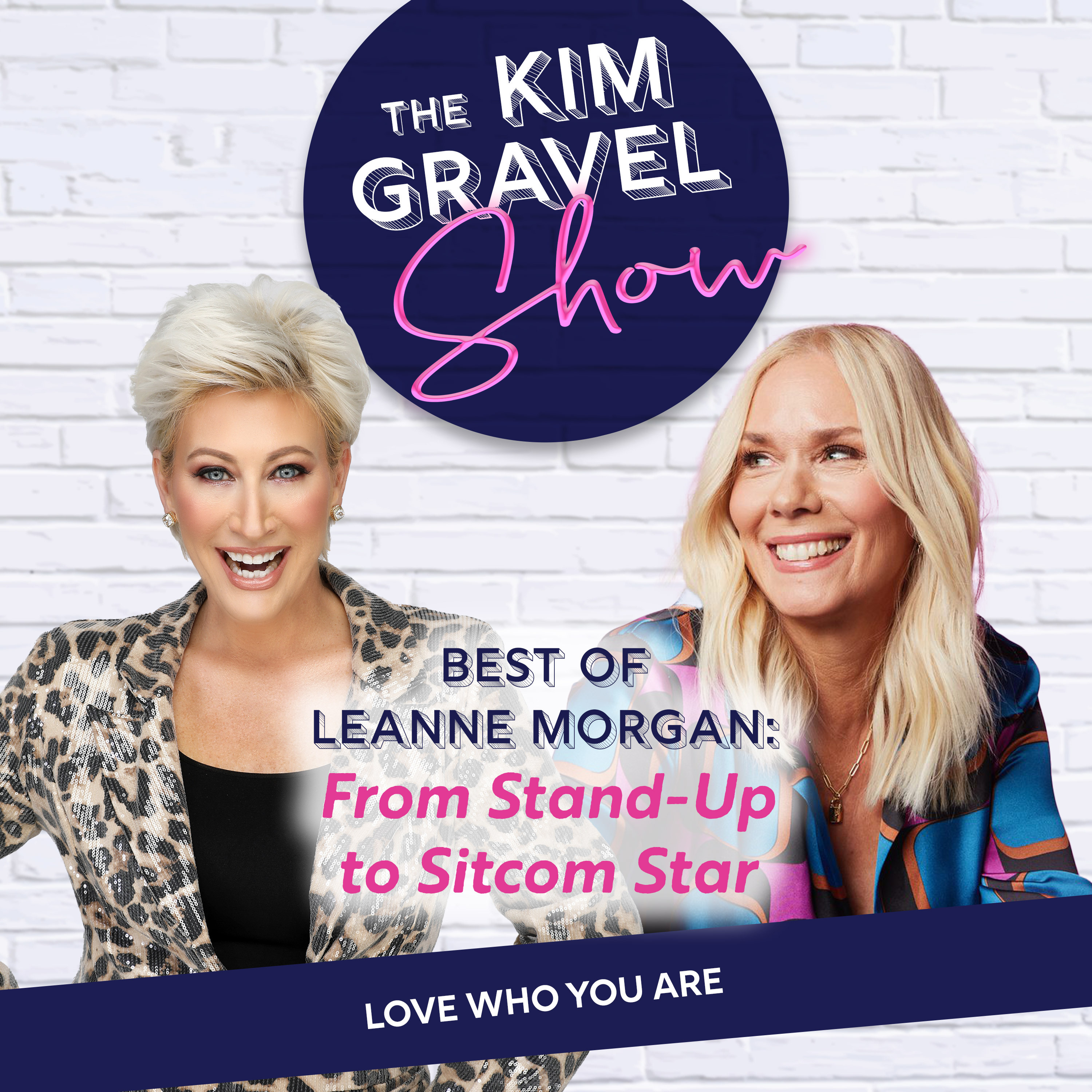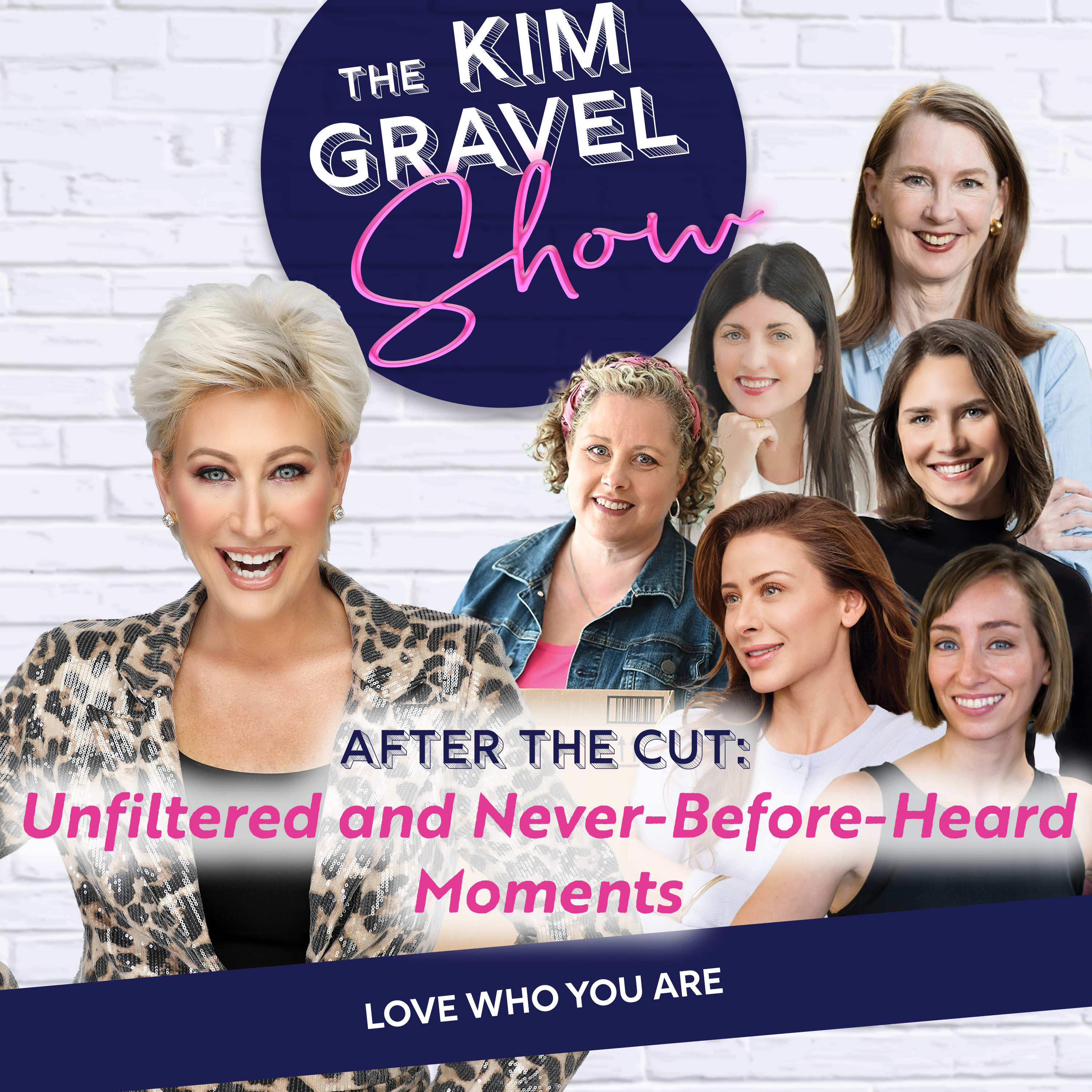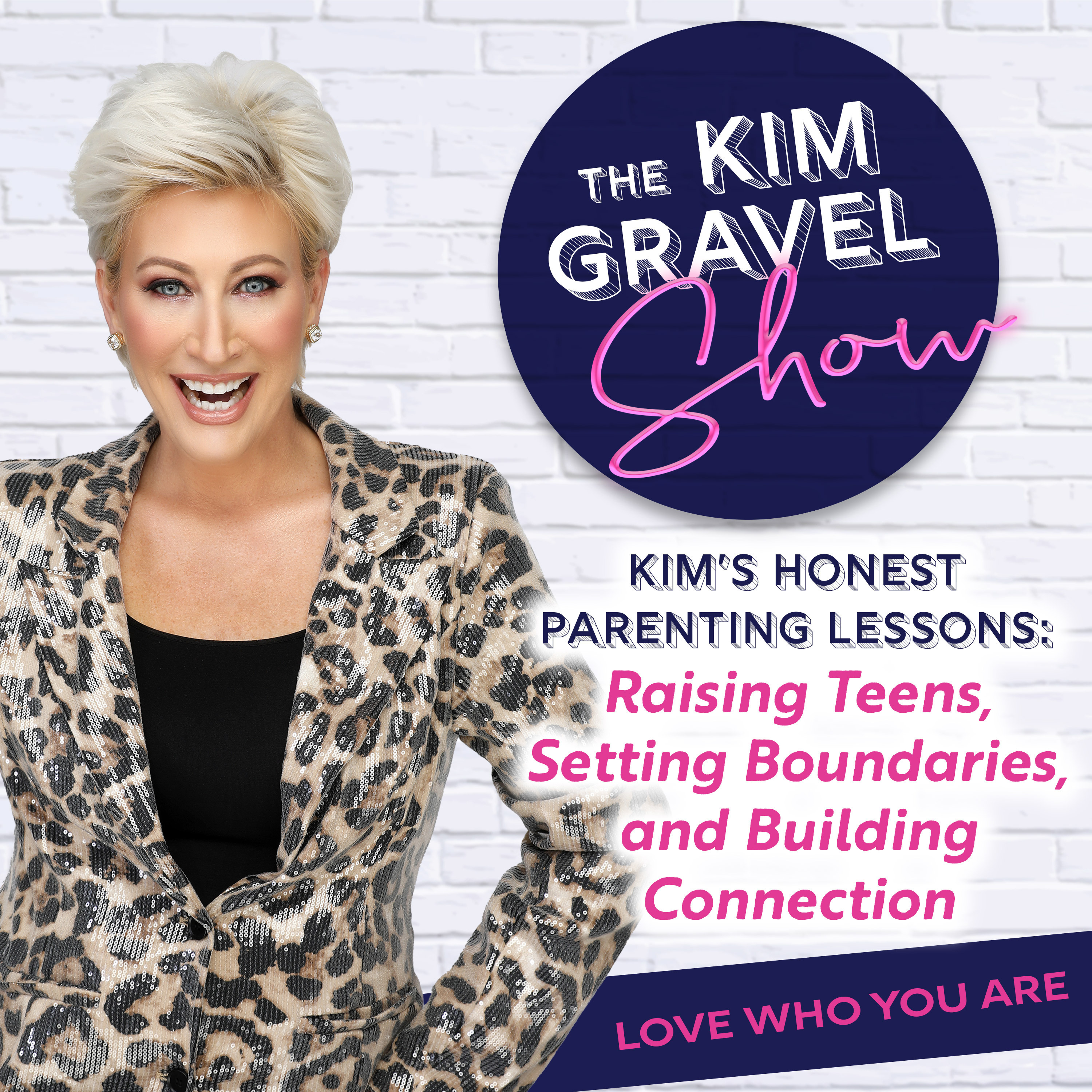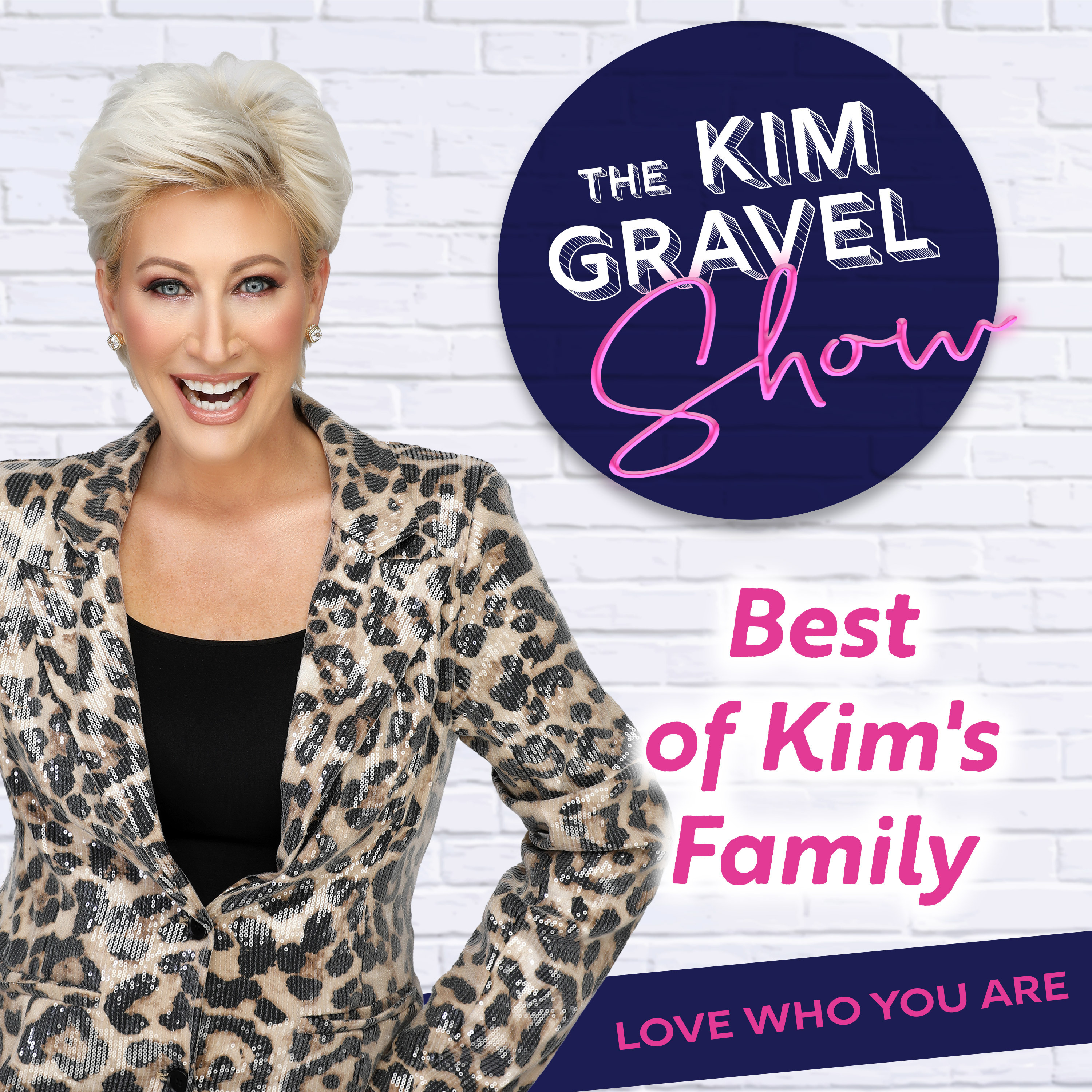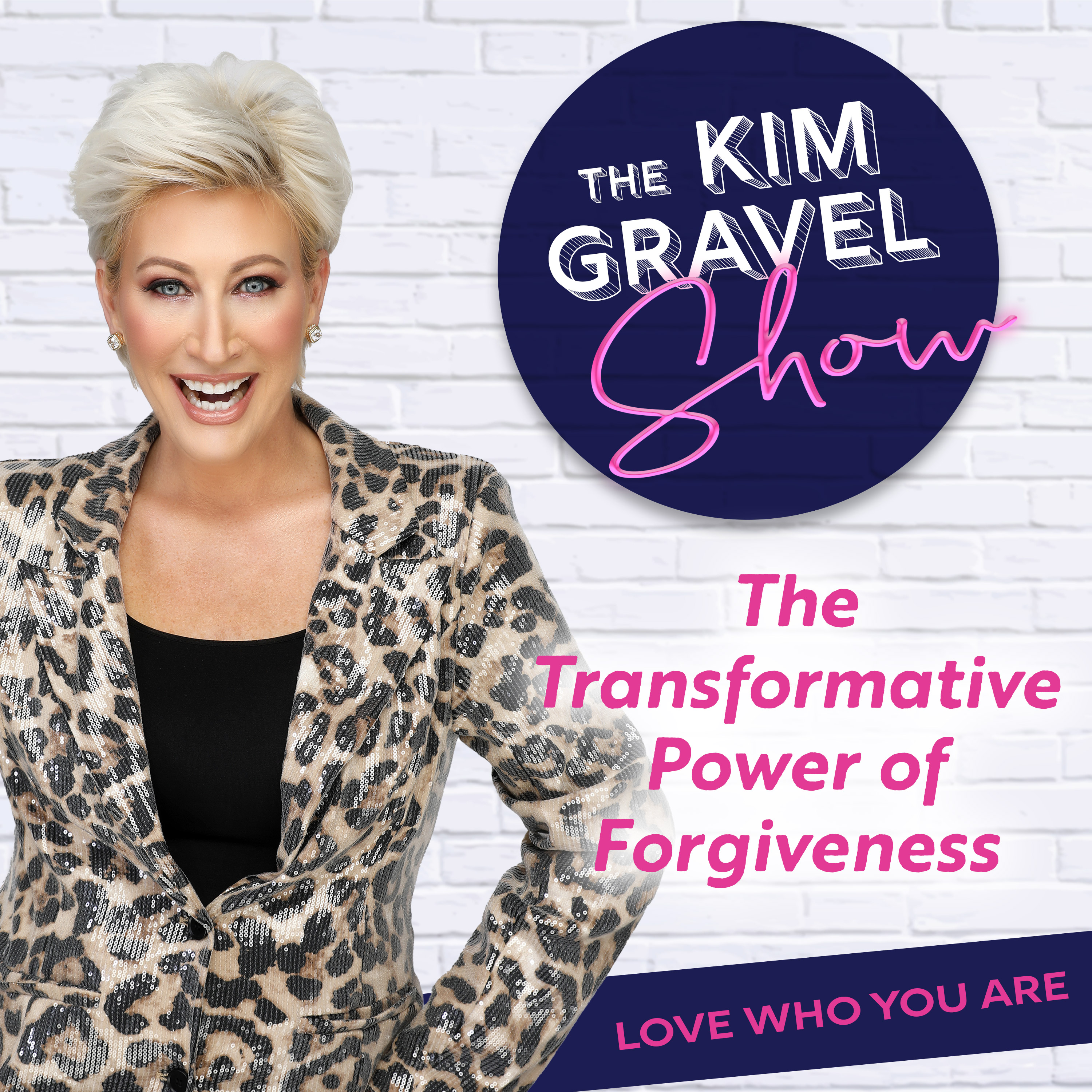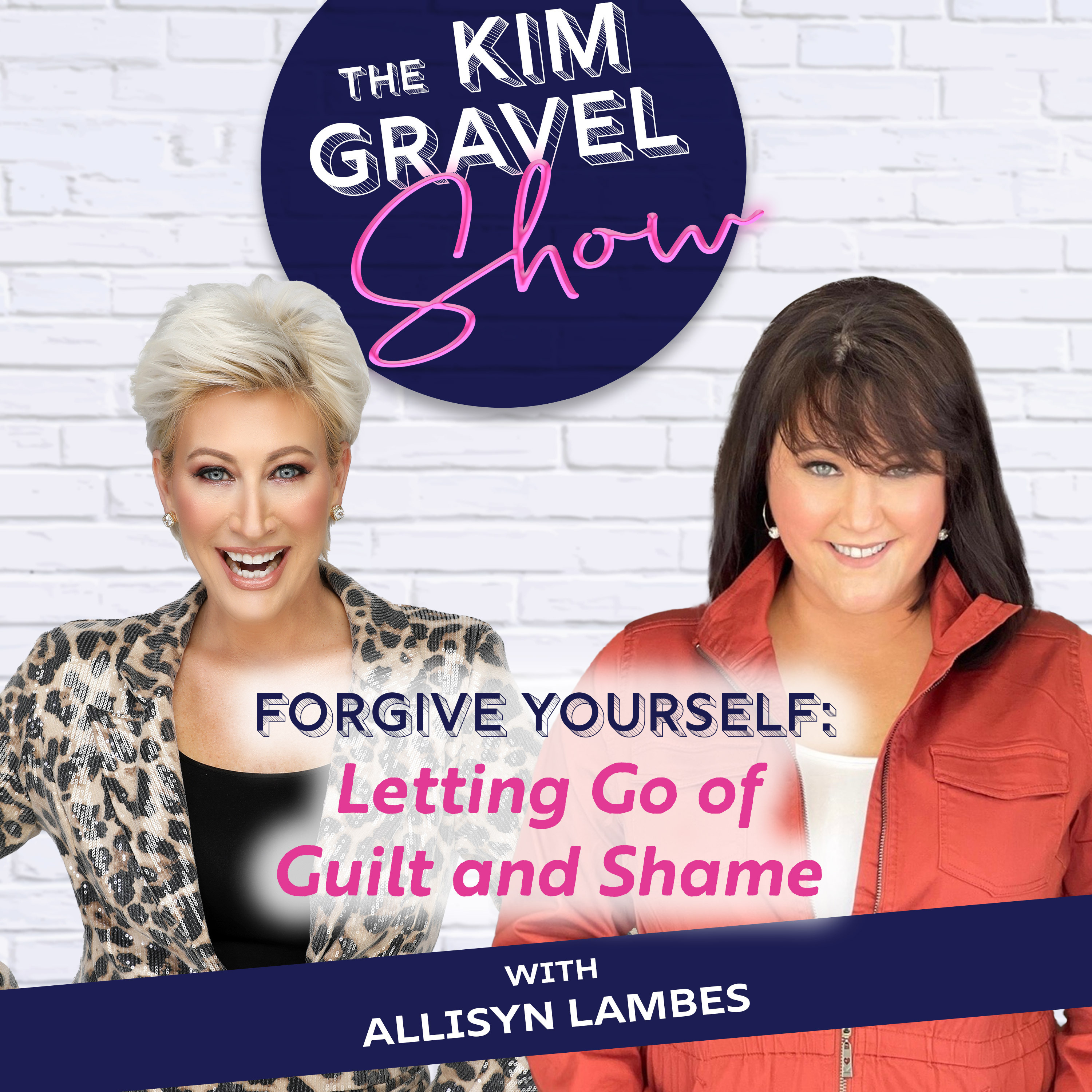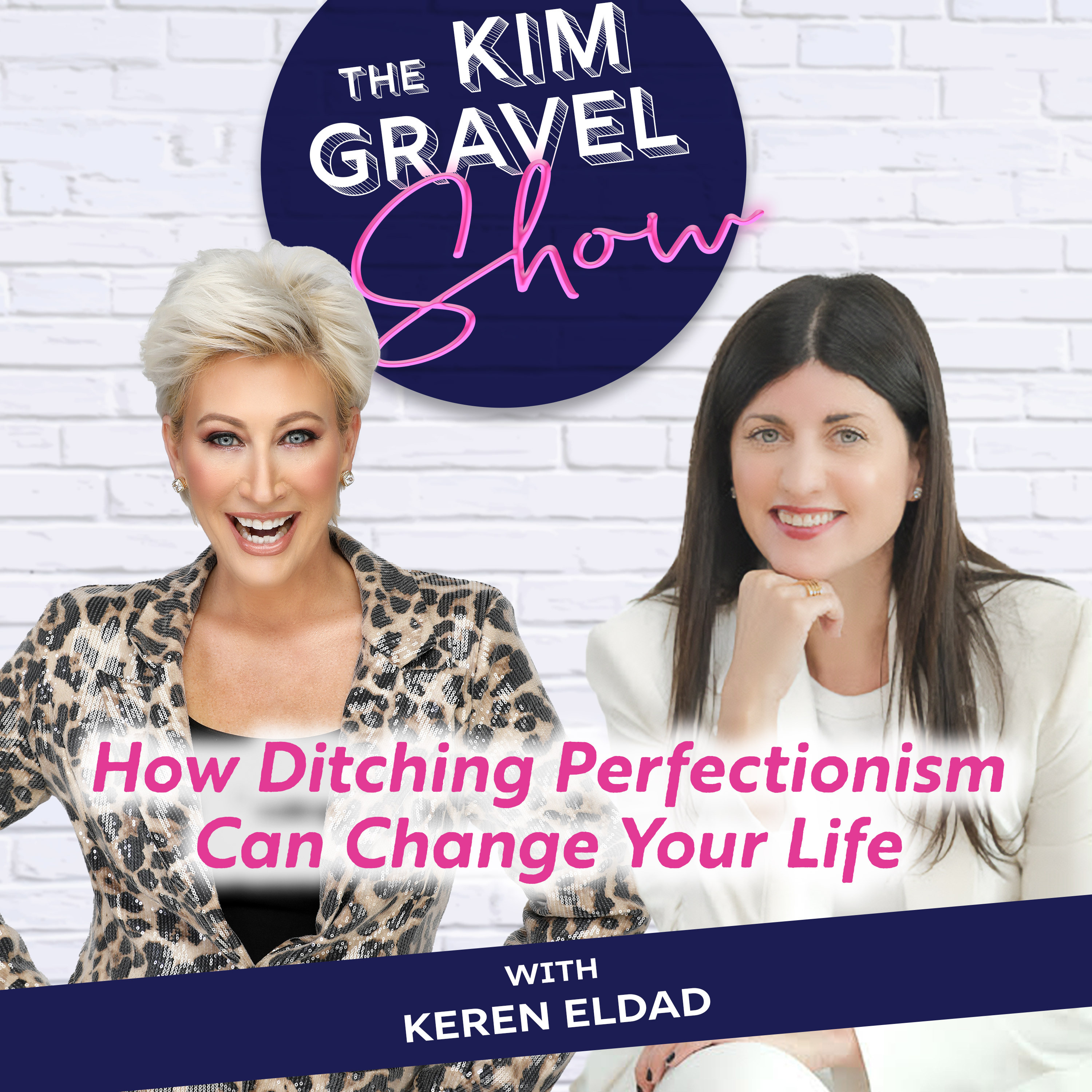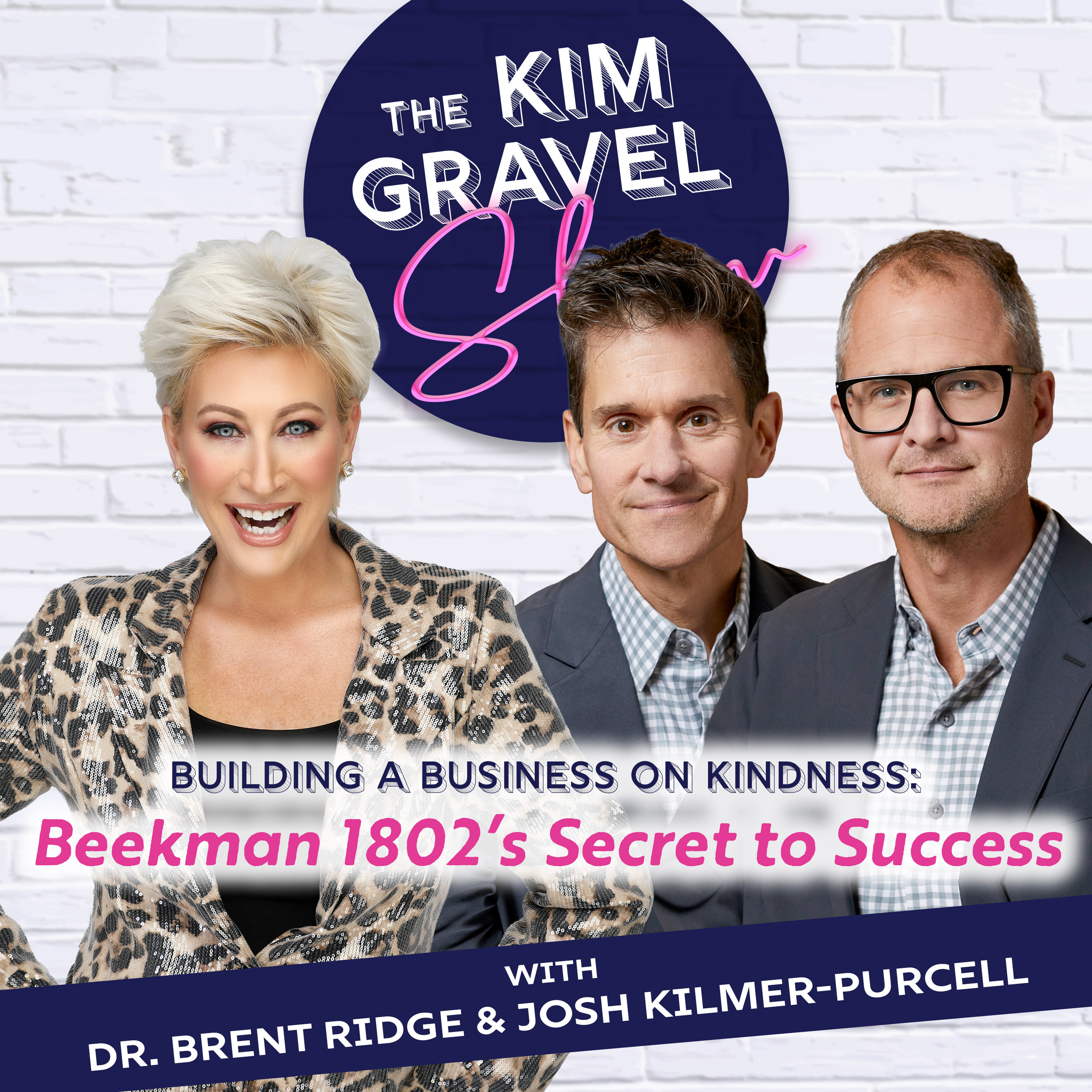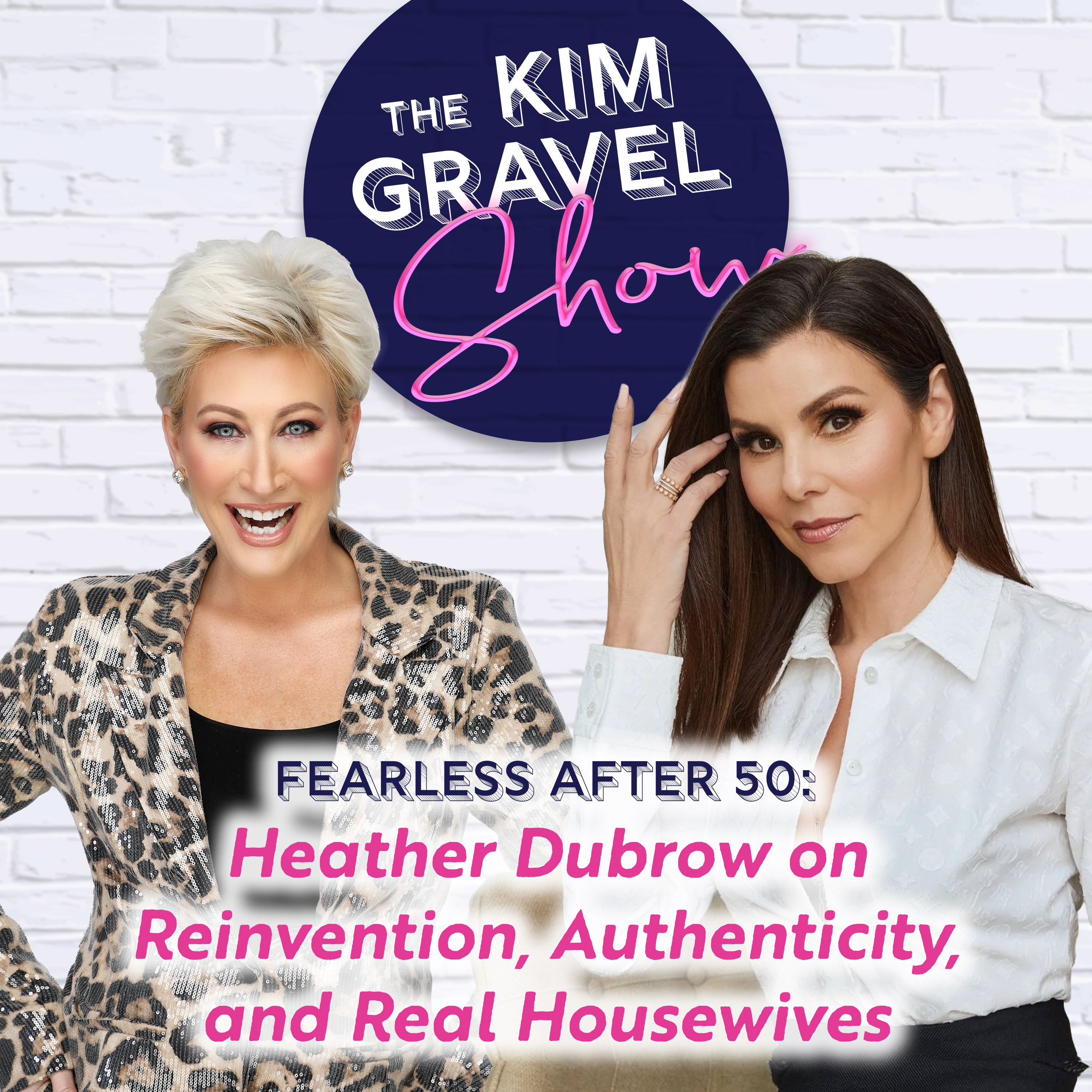Paul Scheer Finds The Joy In His Traumatic Childhood
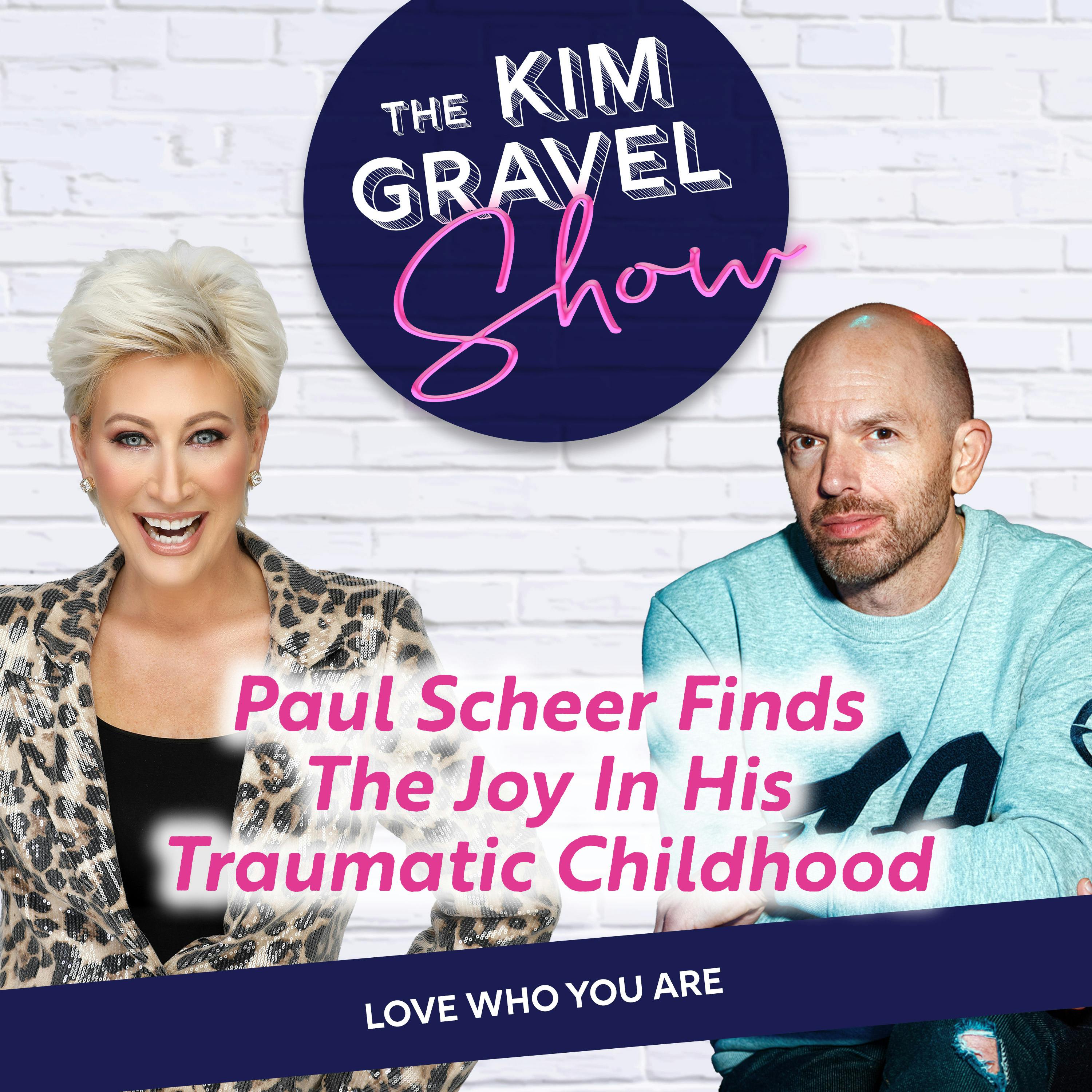
Paul Scheer had a harrowing childhood. Hear how we he was able to break the cycle of violence and find the joy in his journey.
The incredibly talented Paul Scheer is on the show, and this week’s episode is like a Netflix binge of life lessons served with a side of laughter and an extra helping of wisdom. Paul is an actor, podcaster, and comedian who you’ll recognize from shows like Fresh Off The Boat, Veep, The League, and Black Monday. He wrote a fantastic and funny new book called Joyful Recollections of Trauma, about the lessons he learned from his difficult childhood.
Paul has an incredible gift for using comedy and joy to engage with difficult issues like abuse and divorce. His perspective is inspiring and funny as we discuss topics like navigating childhood traumas, finding joy in the simple things (hello, Dairy Queen Blizzard!), and the transformative power of accepting yourself. Paul’s ability to find the joy and laughter in his harrowing past is a masterclass in resilience and reframing perspective. You can’t miss this episode of The Kim Gravel Show.
My favorite quote this week:
"You don't know how weird your childhood is and how weird these things are until you put them in front of other people" - Paul Scheer
Do you want to hear your voice on the show?
Call me and leave me a voicemail at 404-913-6460 and let me know why you love who you are!
There is BONUS CONTENT in our free newsletter so make sure to subscribe at https://www.kimgravelshow.com
New episodes of The Kim Gravel Show drop every Wednesday at 6pm EST.
Join my Love Who You Are movement at https://lwya.com
Connect with Paul Scheer
Listen to How Did This Get Made
Connect with Me:
Support our show by supporting our Sponsor: Crunch Labs
If you have any curious, smart kids in your life then get them the CrunchLabs Build Box.
Crunch Labs is a subscription box for kids aged 8+ with a new build-it-yourself toy each month. It was created by Mark Rober, an ex NASA and Apple engineer.
This summer Crunch Labs is hosting a 12 week virtual summer camp where you get weekly boxes, exclusive videos, special challenges and more. It will keep your kids having fun and learning all summer long.
Camp starts in a few days so make sure to sign up your kids or grandkids right away.
Just click this link to sign up: www.crunchlabs.com/KIM
*This transcript was auto-generated*
Kim:
This week's show is sponsored by a new, innovative startup company. This is an idea, y'all, I can get behind. It's called rent a husband. Their mission is to allow women like you to monetize your lazy husband. Do you have a husband at home just sitting around collecting Dorito dust? Is he just sitting on the couch watching tv, but still somehow always is in the way while you're doing the housework or taking care of the kids? Well, there's a single woman out there, y'all, who would actually think they want what you have, and it's your job to prove them wrong. With rent a husband, all you do is take a photo of your lazy husband and you post it on the app, and they will match him with a single woman who needs a reminder of how good she's actually really got it. Listen to some of the five star reviews. This is so great.
Kim:
Lily writes, delivery was fast, and Paul sat on my couch for 5 hours. He just grunted and smelled really bad. So I realized a man won't make me happy. Yeah, Lily, glad you learned that lesson. Sarah said, rent a husband is the best form of contraception ever. And Jill writes, my husband is finally contributing during football season. We're making a profit, and he is eating someone else's food for once. I don't think he even notices he's in a different house, so it's a win win.
Kim:
Rent a husband is not responsible for any damage to your refrigerator or plumbing. Minimum husband care requirements include, but are not limited to, a 32 inch television and at least one bag of chips. Rent a husband. Check it out. Travis, you're up for rent.
Kim:
This book that you've just come out with talks about your trauma from your childhood.
Paul Scheer:
I guess I can also blame the Twitter troll who pushed me there, too. So maybe I should say thank you for harassing me online, and all of.
Kim:
Us can look back and find some joy in the journey.
Paul Scheer:
I didn't want to talk about this because I didn't want to upset my parents decision is a small step, but I think some people think of it as a giant step.
Kim:
Come with it, Paul.
Paul Scheer:
Right? You know, and then that small change gets bigger and bigger and bigger. Then all of a sudden, you're like, oh, my gosh, I did this.
Kim:
Gird your loins because you ain't even seen nothing yet, boo boo. All right, y'all, this is a moment of all moments. I'm just gonna go ahead and preface and say Zac is fanboying. Fan girling boy crushing right now, big time. Cause this week, I mean, just look at your shirt, Zac. Look at your shirt. What does it say?
Zac:
Team sanity, baby.
Kim:
Which I don't know if that really constitutes you and I, but we'll get into it because our guest this week is Paul Scheer. Paul, you know him. When he pops up on the screen, you gonna know who he is. He is a sag, award winning actor, a podcaster, and now an author. I mean, you can recognize him from hit tv shows like Fresh off the boat, black Monday. I love fresh off the boat. Zac. The league veep, y'all.
Kim:
That show, it's one of my go tos. When I'm feeling low, I just put on veep. He hosts two hit podcasts, including Zac's favorite. And you know that's your t shirt, Zac, right? How did this get made? His new book is called Joyful Recollections of Trauma, which is just released last week. Let's welcome.
Paul Scheer:
Whoa. What an introduction. I have never had my own name sung before. I feel like I can hang it up at this point. There's nothing going to be better than that. I mean, that is. I want to meet that person who sang that, did that.
Paul Scheer:
That wasn't you. Was that you? No.
Kim:
No.
Paul Scheer:
Was that Zac?
Zac:
No. No. I wish.
Kim:
He is a true fanboy. Zac, have your moment, baby. Have it.
Zac:
I will just say this, Paul. I have spent, maybe conservatively, 1000 hours listening to how did this get made?
Paul Scheer:
Oh, my gosh. I thank you. I thank you for that. And look, you are one of the people that I really identify with with a team sanity shirt there. So you know what? I bow down to you wearing a team sanity. Kim, if you don't know, how did this get made? As a bad movie podcast? And we did an episode on a movie. We did this episode called Drop Dead Fred. And there was a division that broke out into a yelling, screaming match.
Paul Scheer:
It was like family Thanksgiving. Yelling. And team sanity. Team Fred and I fell on the side of team sanity and happy to see that Zac is here, which means he's a great producer, Kim. And a plus plus, a plus.
Kim:
And he's got good taste in podcasts, too, Paul. I mean, you know what I'm saying?
Zac:
I'm going to just like, soft pitch. Like, I don't know, being a guest on the show at some point.
Paul Scheer:
You want to be a guest on the show, right? There we go. I mean, we normally don't have guests on the show, so this would be a high. This would be a high. Bar to jump in.
Kim:
High honor.
Paul Scheer:
It would be a high honor. I'm going to have to run you by Jason and June as both team. Yes.
Kim:
Well, I'm a fan of June, so you have to take me on the podcast, too. I want to say this to you, though. The fact that we sung your name counts for something.
Paul Scheer:
It does. I mean, already I'm indebted to you forever. So I guess maybe we should. Maybe I should just get rid of Jason and June and just replace it with Kim and Zac. I think maybe that's the new. That's our spinoff.
Kim:
But, Paul, why don't you just. You could just have Zac could be a special guest. You could do Paul and two blondes. I mean, you really could.
Paul Scheer:
I love it. All right, we're in. All right. This is great. Yes.
Kim:
We're going to keep Jude.
Paul Scheer:
We're going to fire it. I love it. I like the way you're thinking, Kim. This is why people love you. Because, you know, you know, you figured it out. You know it all.
Zac:
And honestly, I think, like, you could wear a blonde wig. I'm seeing a lot here right now for this.
Paul Scheer:
I'm a bald man. I wear wigs. Well, you know. Cause there's nothing there to tamp down. I could pop out a blonde wig, no problem.
Kim:
Listen, y'all, I mean, we're going off the rails here. I just want to tell you, Zacary's a huge fan.
Zac:
You should, like, ask a question about the book or something.
Kim:
No, let's go.
Paul Scheer:
First of all, we're here to hang out. We don't have to. We don't have to. I want to get into all of you don't feel any pressure to get anything out. We're here.
Kim:
Paul, the reason, the real reason I was, like, so excited when he said, oh, my God, we're gonna get Paul's share is because my audience, the people who listen to this podcast, are going to know and love you, but they're probably not going to know. Cause, I mean, we've watched. I mean, we even know your parks and rec episode, right? I mean, like, you've done it all.
Paul Scheer:
I mean, you're IMD of different shows. Yeah, tons.
Kim:
And you're such a great comedic actor. But I think what I really drew me to you being here tonight is because this book that you've just come out with talks about your trauma from your childhood, your hard childhood. And after reading it, I thought, gosh, I think so many people deal with this kind of thing in their childhood. And I loved your joyful recollection of it. Tell me how this all came about. You've got to give everybody details about the book because y'all have got to go get the book.
Paul Scheer:
Well, first of all, thank you for that. And I think we actually do kind of sync up well, because I think what you do so well on your show is you can talk about real issues, but it can also be fun, and there's a joy to it. And when I made this, when I came up with this book, joyful recollections of trauma, it's the way I do talk about my childhood. I talk about my childhood in this fun way. I've been doing this show. How did this get made for 14 years? And I would always tell these stories from my childhood. And, you know, I would tell these things like, oh, yeah, my grandma told me that if I opened the door to a stranger when my parents were at home, a local butcher would kidnap us and then bring them back to the butcher place and then chop us up into chopped meat. And you know how they caught him? When one of the moms was making a chopped meat burger, the burger looked up at the mom and said, mama.
Paul Scheer:
And, are you kidding me? Jason and June have the look that you have right now. Just absolute shock and disbelief. And they're like, that is horrific.
Kim:
Horrific.
Paul Scheer:
That is traumatic. And I'm like, oh, no, that was just, like, a funny story my grandma told me, like, yeah, the Butcher who kills children. And so. But you start to like you this stuff. You don't know how weird your childhood is, how weird these things are, until you put them in front of other people. And for my sake, an audience who started to make Reddit threads and YouTube mashups of, like, Paul's most scary stories, harrowing adventures of Paul. So everyone was saying, you gotta write a book. And I knew if I wanted to write a book, there's a version of it where I could've just told anecdotes, and it would've been fun.
Paul Scheer:
But there's also a version of it where I could talk about the full story, the story that I really don't ever tell. And, yeah, you're right. I came up in this world where my mom, who remarried this man, he was incredibly abusive, and we had this very physical relationship for a long time. And my mom and I were able to escape that. And the book is kind of split into two parts. Like, the first part being about that part, and the second part is kind of like, the ramifications of that trauma, whether it's in relationships or becoming a dad and all that to say. And there's fun stuff in there. There's stories about why everyone should have a minivan.
Paul Scheer:
There's a story about me meeting Christopher Walken. You know, we have. It's fun. It's not all going to be. It's not a bummer book. It's not because my goal was, honestly, I want entertain. This is a book to entertain. This is not a book for me to just do therapy.
Paul Scheer:
But what I found is talking to people about this. You're right. Everyone has.
Kim:
It helps.
Paul Scheer:
Yeah, it helps. It's like, that's where I've gotten better. Like, your show is like that. You help, like, when you hear somebody who has gone through something, you don't even have to go through same exact thing, but you can relate to it. You can see it. And this is not prescriptive. This is not like trying to say this, do it my way or not.
Kim:
It's just not a how to.
Paul Scheer:
No, it's just sharing a story. And I think it's been. The book has been out, and connecting with people about it has been, honestly, the best part about it is hearing everybody's stories and talking to people.
Kim:
Right. What feedback have you gotten from people who you've talked to about the book? Do you hear that? The connection?
Paul Scheer:
I think that so many people are afraid to talk about this, whatever they have gone through, and it could be a myriad of things. And I think that we come from. I mean, I'm in my forties. I come from a world where I didn't want to talk about this because I didn't want to upset my parents. Right. My parents were the ones I'm like. Because it's like, we don't talk about that. We don't discuss it.
Paul Scheer:
You know, it's on anybody else's business. And it became so ingrained in me that I was like, oh, yeah. I just lock off this part of my life in a general conversation. I don't bring it up. And I realized as I had kids, I was like, I don't want to lock off parts of my life. I don't want to tell them, like, no, don't ever mention that. No, your grandma had this, you know, or I did this. I felt that was weird.
Paul Scheer:
And I'm proud of who I am, and I'm proud of what I've learned about myself and how I've overcome certain things to become a better husband and a dad. And. Yeah. So I think. And even sharing that, it's important. I mean, this is the thing I was most nervous about. I talk at the very end of the book about learning that I have ADHD as an adult, which is the.
Kim:
Way you learned it, the way you learned it on TikTok. You've got to tell that story, Paul. Tell that story.
Paul Scheer:
So I am on. It was actually. I was on Twitter. I was a father's day on Twitter. That was a Twitter for whatever the issue is. I was talking about my favorite team, the Los Angeles Clippers, and a basketball thing, and I started getting into this little war of words with this other guy who was coming after me about the clippers, and I just wouldn't let it go. And I just wouldn't let it go. And then all of a sudden, this guy goes, you're hyper fixating.
Paul Scheer:
You have ADHD. I do, too. You got to check that out. And I was like, what is this guy? He doesn't know anything. I don't have ADHD. I'm like, what? Hyper fixating? And I was so. Ha ha. And then I just slightly just googled ADHD.
Zac:
Okay.
Paul Scheer:
And then, interesting. This kind of checks out. And then I went on to, like, I went on to Twitter, and I was like, let me put it in here. I think it's a coincidence. And I started seeing all these things, and it was like I started to read the manual for my life. I was like, wait a second. I thought these were my own weird quirks. I didn't realize this is a thing.
Kim:
It's a diagnosis. Yes.
Paul Scheer:
Yes. Now, I did not just diagnose myself on Twitter, although, you know, look, many times have I figured out I've had something from WebMd. But then I went and I went to my therapist. I read more books. I went to. I did the whole thing, but it was embarrassing to me to feel like I could just find this out late in life. And I think that. But what I also found out was in reading those Twitter threads, these people were sharing these things and talking about where they were, and I was like.
Paul Scheer:
And that actually made me find help for myself. I wouldn't have done that if I didn't read it. Now, I guess I can also blame the Twitter troll who pushed me there, too. So maybe I should say thank you for watching me online.
Kim:
Well, I mean, like, as my daddy always just say, takes one to know one. You know what I'm saying?
Paul Scheer:
There it is.
Kim:
It takes one to know one. Now, let me ask you this. When was it that you realized, oh, my God, I was abused as a child? Cause you know what? A lot of times when you grow up, you don't know what you don't know or what you. What you. What? You know what I'm saying? When did you say, right?
Paul Scheer:
You're just a kid.
Kim:
That's what I mean.
Paul Scheer:
And kids take whatever you give them, good or bad, right? And they just.
Kim:
And they don't know the difference.
Paul Scheer:
They don't know the difference. And there's no outlet. And I grew up in a time without Internet or anything like that, so I'm like, you know, I can't Google. What do you do here? What do you. I just. It was, to me, when I talk about this period in my life, and I even had a hard time calling it abuse, I'm like, well, I don't know if it's abuse. I'm like, yeah, he threw a pitchfork at your head. He took down your pants in front of everybody at your birthday party and spanked you with a belt and multiple other things.
Paul Scheer:
It's abuse. But it's hard to even say that as it's like, oh, you wrestle. At least for me, I wrestle with that kind of coming there and saying that. So it was a process of kind of learning. I think once we left the situation, it was a moment to be like, oh, that's not how the world works. That's not how things happen. But it was so commonplace, and I'm so cavalier about it. Sometimes I'll tell my wife a story about something like, oh, yeah, there was a time when hunter, he locked me outside of the house in the middle of winter and had no shoes on, and I was just in, like, my underwear, and he wouldn't let me in until I called him dad.
Paul Scheer:
Right? And it's like, and you think about that like I'm a six year old kid in the freezing cold snow not being let in because he wants me to call him dad. I want to just call him Hunter. And he didn't accept it until I called him dad. And then he let me in. Or we play monopoly, and we played monopoly, and he didn't want to pay me for landing on boardwalk or whatever. He full on choked me. But to me, it was like, oh, that's just the way he plays monopoly. He gets pretty passionate in playing monopoly.
Paul Scheer:
So you're in that zone where you're like, oh, I'm not questioning it. It's just like, that's him. And I think it wasn't until I, like, I was in my twenties where I started to understand it on a real level, because it's like, okay. Yes, it was happening. That was there. We got out of it. And I came from a family that was like, hey, if no bones broken, you're fine. Don't complain about it.
Paul Scheer:
And that's not always the best way to do stuff. But you have that thing of, it's fine. You're fine. You're alive. You're fine. And I just kind of put it away. Yeah, we got through it. It's fine.
Paul Scheer:
We got out. We're fine, we're fine. Pull yourself up by your bootstraps. And I wasn't acknowledging any of it. I wasn't dealing with any of it. And I. And I'd gone through a string of relationships where I had had similar breakups. And, you know, and sometimes when you get a breakup, you're like, that's their fault.
Paul Scheer:
It's not me. I'm perfect. They're the worst. You know, it's like. And. But it was always kind of coming back to the same thing, which was like, I think I was so passive in a relationship. And when you are somebody, a child of trauma and stuff like that, you are someone who. You don't wanna rock the boat.
Paul Scheer:
You've been conditioned. Yeah, exactly. And I didn't even realize I was doing it, but I just didn't have an opinion. I never wanted to get into a fight. I never wanted to make the other person upset. It really like, to see anyone else upset made me upset. So nothing was a problem. And this girl was about to break up with me, and we decided we'd go to couples therapy, which, honestly, if you're just dating somebody for a little bit, you're going to couples therapy.
Paul Scheer:
Get out of it. You don't need it. Get out.
Kim:
If you're already in therapy, you're there.
Paul Scheer:
You don't need it. Get out of there.
Kim:
Get out.
Paul Scheer:
So we went to couples therapy, and it wasn't working out, and we decided to break up. But the therapist said to me, would you like to stay and continue to talk? And I was like, yeah, I think so. And now I had kind of had this aversion to therapy, because when I was a kid, we went to a family therapist to deal with Hunter. And, you know, I told her everything.
Kim:
I was like, hunter didn't go. Hunter didn't go.
Paul Scheer:
Hunter was there. Hunter was in this family. Yes, we were there as a family.
Kim:
That's ballsy.
Paul Scheer:
Yeah, right? And so I told her everything to his face. We were there. And this therapist wrote it down, and she said, look at this. If this happens again, I'm going to take this in my own hands. I'm going to call child protective services. Hunter, you can't do this anymore. And then we went home as a family. It happened again.
Paul Scheer:
We went back to therapy, and I said, it happened. He did the things that he said he wouldn't do. And then she's like, okay, I'm gonna give you one more chance. If you do it again.
Kim:
Let you down.
Paul Scheer:
You let me down. And from that point on, I was like, I'm not going back to therapy. What's the point? Yeah. I was like, what's the point? This person didn't protect me. But when this therapist, when I was older and in my twenties said, do you wanna come back? I was like, okay. And I think part of it, sadly, was just, I wanted to show her that I was the better person in the relationship. Like, yeah, I'll come back.
Kim:
I love it.
Paul Scheer:
Yeah, I'm here for it. I'll deal with it.
Kim:
That's a really dude thing to do, though.
Paul Scheer:
Like, I wanna prove. I wanna prove. And then she'll tell me who was right, you know, I'm not proud of it.
Kim:
That's fantastic. I love it.
Paul Scheer:
But she said, you know, but she said to me, she did this thing. Now, I was already doing comedy in my twenties, and in the middle of the session, from behind her chair, she pulls out this yellow wiffle ball bat. And now I think, oh, my gosh, am I in the untouchables? Is she going to beat me up with this? I'm like, what's going on? I've never seen a therapist pull out like a wiffle ball bat. I was like, this is tough therapy. But she pulled it out and she said, take this, and I want you to beat the crap out of that couch you're sitting on. And I want you to talk about your anger. And I'm already, like, I said, doing comment. I'm like, this is lame.
Paul Scheer:
I can't do this. But I'm like, I feel stupid. I'm just, like, hitting the couch. I'm mad at this. I don't even know what I'm doing. But what I think that she saw was I was holding in this anger that I never really dealt with, that I never opened up. I had, like, a switch. It was.
Paul Scheer:
And I did go through this period of time where it was like, I get really, really angry, like Ray John, like the Hulk. But then I was like, I can't do that. So I just shut it off. And I think what she started to help me understand was like, I have to come back to myself. I have to be. I should be rejected. I can be rejected. I can have an opinion.
Paul Scheer:
I can be mad. I can have the. I learned the difference between. And this is not a thing that she gave me, but the thing that I thought of, which is, like, on off switch, switch to a dial. Like, I can be, like, a one or a two on an anger scale. I can. You know, I don't have to just.
Kim:
Go, oh, that's good.
Paul Scheer:
You know, and that was important, and that started me down this path so I could actually have a healthier relationship. And in many respects, in that time, I was dating a few different people. Not to brag. No. But then I found my wife, who I call my ex girlfriend. So I found my ex girlfriend, and so we would. So my. It's a June.
Kim:
Is she really your ex girlfriend? Cause she's.
Paul Scheer:
Yeah, I mean, this is. I like to call my wife my ex girlfriend, my now wife, but my former ex girlfriend, June.
Kim:
Yeah, she's fantastic, too.
Paul Scheer:
She's amazing. I love June the best. But I went into that relationship kind of recklessly. It was like, I'm just doing things different. Like, I'm gonna go here, and I'm just gonna be me, and if I don't like something that she says and she doesn't like, I'm just gonna bring myself to it, because I just wanted to not care and not in a bad way. Like, just in a way. Like, I'm not gonna try to hide myself. Free.
Paul Scheer:
Free. Exactly. And what I found, like, so quickly in all those relationships.
Kim:
Can I say something? Let me ask you this, Paul, because you're just. Now you've got me, like, started talking about one ADHd to another squirrel.
Paul Scheer:
Yeah. Yeah, I love it.
Kim:
How did you decide to just be you? So many people, I get this question all the time. Like, Kim, you're so authentic. You're so real. And I know what they're saying, and so I can resonate with what you say. When you said you decided in this relationship, how did you do that? Like, what?
Paul Scheer:
I think it was prescriptive in a way. Like, the therapist and I were talking. She's like, go out and do this. I talked to somebody when I've been talking about the book, and they said I had a similar thing. My therapist told me for one week, you got to say no to a majority of things. You have to go force yourself out of your hole. Not because. Be honest with yourself.
Paul Scheer:
If someone's like, hey, do you want to go see the NBA finals. Don't say no if you want to see the right. Yeah. Say yes. Always say yes to tickets to basketball game. What I think it was is like, don't prejudge, like, oh, they won't like me if I say this.
Kim:
Okay.
Paul Scheer:
You know, they. And you made that conscious decision.
Kim:
Okay.
Paul Scheer:
Right. And I think it has to be conscious for it to become subconscious. Right. Like, you have to force yourself through it and see what it feels like. Maybe that person's not gonna like me, but I, at least in myself, my opinion, is my own, like, because what I realized, too, is, who am I? Who am I trying to be if I'm not myself? I'm just this other person. I think we see so many people in miserable relationships or careers, jobs that they don't like. Yeah. Like, because it's like, well, I'm supposed to be here.
Paul Scheer:
I'm supposed to be in a house like this. I'm supposed to live in this place. I'm supposed to have kids, and life shouldn't be that. And I think when people say, like, oh, the regrets that you have on your deathbed, see many of those tiktoks, it's like, say what I want, do what I spend time with, family, I think it is just like, don't let society dictate for you how you should.
Kim:
Be or even the constructs of your family, of what you come from, Paul. I mean, look at what you came from. You've broken out.
Paul Scheer:
It's something that's really. But it was a process. This wasn't like, oh, in four months, I'm back here. It was a slow and steady process to learn and feel comfortable and feel safe.
Kim:
Did your wife help you do that, or.
Paul Scheer:
Yeah, I think unintentionally, because in the beginning, I was just like, I don't want to say she was an experiment, but it was. I was experimenting with myself. I'm going to do things differently, different. She doesn't know I'm doing, but we just connected. And I think that the other thing that was really interesting, I talk about this in the book a little bit. My parents got divorced. My real dad and my real mom, they got divorced when I was three years old.
Kim:
Wow.
Paul Scheer:
But they decided that they weren't going to tell me, and they were going to pretend that they were still married for a couple more years, which is a crazy thing, right? But they would talk about this, like, oh, my gosh, we did this amazing thing. But the thing was, I would wake up in the morning, and my dad would be in the kitchen. But he would be leaving when I went to bed and getting up earlier. When getting there before I got up to make sure he was there, I realized I never saw my dad in his pajamas, right? And I didn't know. And then when they revealed, like, oh, we're getting a divorce, which I don't even really truly remember, it was sort of like, hey, we're going to move out of this house, and your dad's going to have a house, and I'm going to have a house. Like, it was never really, like, talking about it. Like, we're going to go here and you're going to go there. And I think it created this distrust.
Paul Scheer:
It felt like I was on the Truman show or something like that. I was like, what's real? What's not real? I spent multiple years being in this house where I was like, are my parents together? They lied to me. And is relationships lies? Which is tricky. And I don't think I realized that until much later because I would talk about that. Isn't it cool? My parents stayed together. They pretended they were married for a while. And I remember one time I saw my dad sleeping in the guest bedroom. And I said to my mom, I was like, why does dad sleep in the guest bedroom? She's like, oh, our bed is broken.
Paul Scheer:
And I'm like, oh, okay, that makes sense. It's a great metaphor for divorce as well. But it was like this. You forget these are the little things that can somehow imprint on you. So, like, I remember I was in bed with a girl that I've been dating for a while. Again, not to brag.
Kim:
Listen, it ain't bragging if you can back it up.
Paul Scheer:
And she said to me, like, I love you. And I said, no, you don't. Like, I couldn't take that in. And by the way, really romantic guy, right? I just was like, I don't. I don't believe it. I don't believe it.
Kim:
You don't believe it because. Did you ever have trouble, like, being truthful? Because everything, like. Cause I think a lot of people, a lot of us, I don't say people, me included, we live, not a facade, but almost, like you said, the Truman show, we living out things that were like, what? Even, like, in my own head, I'm like, why am I doing this?
Paul Scheer:
Right?
Kim:
Why am I.
Paul Scheer:
And sometimes it's like, just because, I mean, sometimes it's how we were brought up. Other times it's also like, we're just following tv and movies, right? Like, it was so funny. You know, like, you're like, I have two beautiful boys, June. You know, like, I didn't understand what childbirth, I thought childbirth was. Like, I'm pregnant. I'm gonna go here. Like, you know, you just see how.
Kim:
Movies present three pushes and it's over, right?
Paul Scheer:
Yeah. It's like I didn't understand there was a whole thing going on here, you know?
Kim:
Like, you don't understand if you dilate 17 cm. Yeah.
Paul Scheer:
You're in there for 18 hours, you're like, oh, my God.
Kim:
The torture. The torture.
Paul Scheer:
Oh, my gosh. I.
Kim:
Totally worth it. Totally worth it.
Paul Scheer:
Amazing. And there's something about it that makes us all forget how hard the, I mean, look, you had the worst. Women have it the worst. I'm just saying. But you forget how hard that first month is with the kid. And then you're like, let's do it again. But I think that you're right. We're just in this thing where I guess I'm supposed to be doing this.
Paul Scheer:
Is this what I'm supposed to be doing? And even in a relationship, you're like, I think there's also this fear of, am I weird? If I tell you we are weirdly feeling. Yeah. And you are.
Kim:
We really are.
Paul Scheer:
And we all are weird.
Kim:
We're all weird.
Paul Scheer:
We're trying to hide how weird we are. And we sometimes actually, I think as a society, attack weird people because we're like, you're too weird. You're too honest about, you're like, oh, you go back in the, you go back inside. We want the normal people. You know, it's like, it's interesting when people are a little bit weird and normal. Like, there's weird and crazy, but weird and normal. Sometimes we are like, hmm, I don't like it. But then it's also like what you're saying, people who are authentic.
Paul Scheer:
And I think what that is is a confidence in who you are. And it's not aggressive. It's just like, you know what you like, you know what you don't like, and you know who you are and doesn't mean you're not going to compromise. It doesn't mean you're not going to do things that you don't want to do, because that's life. But you can be authentic to yourself and understand, well, I don't like this, but I'm doing this because of this, want to do this because I want to help this other person or whatever, whatever the case may be.
Kim:
I just love when you said I made the decision. I just, I honestly think that is the biggest trajectory shift in one's life when they decide. Like, I say this about, like, weight loss. Cause I just recently went and I just decided. People said, how'd you do it? I just decided I was going to do it. And they were like, no, give me the plan. I'm like, baby, it ain't nothing different. You just quit eating more.
Kim:
You know what I'm saying? Like, you decide. Yeah.
Paul Scheer:
So you are so right. And here's the thing. I think, yeah, decision is a small step, but I think some people think of it as a giant step.
Kim:
Come with it, Paul.
Paul Scheer:
Right. You know? Cause it's like, you just have to decide to go down the path. It's like, right? And that's it. And look, I know I had to lose some weight on Black Monday. I had to be just in short shorts, totally naked, besides short shorts, rollerblading down a pier.
Kim:
I was fantastic.
Paul Scheer:
Thank you. I was in no condition to do that. And I was like, I got to figure out this thing. And I talk about, oh, I want to look good. I want to do this. I got to work out. I was like, but until I actually did a squat or did a push up, it's not going to happen. And I think that people always want the cheat code for the end.
Paul Scheer:
And how you lost weight, how I got over this, it's unique to us. People even ask me that, too. Like, how do you get. How do you become a comedian? What do you do? It's like, I can tell you general things, but you can't follow my path. All I did was, like, I wanted to do this. I found like minded people. I have fun doing it. I wanted to, you know, I wanted to break a pattern in relationships.
Paul Scheer:
So I started acting differently, knowing that it was okay, because these women that I were dating, this is like, we'll see. If they don't like it, they'll leave. I'm not in a relationship. I'll just try. And then slowly but surely, a change. And it's slow change. And, yeah, it's great for me to say, oh, yeah, I wrote this book, and here it is. But the truth is, it's small.
Paul Scheer:
And then that small change gets bigger and bigger and bigger. And then all of a sudden, you're at a point, and you're like, oh, my gosh, I did this. How did I do this? I don't know. It's the small steps.
Kim:
You said, break a pattern, and that's such a powerful idea. Cause so many of us recreate our own trauma. But you broke out. Okay, hold on, hold on. More with Paul Scheer right after this break. We're gonna play a clip from his book. You've got to get this book. We'll be right back after this.
Kim:
And we're back with Paul. We're back with Paul Scheer. We're talking about his book. We're talking about his comedy. We're talking about everything. We're solving world.
Paul Scheer:
We're making a difference, Kim. We're doing it.
Kim:
We're making a difference. Okay.
Paul Scheer:
You said something to me that just made me think of this thing.
Kim:
Okay.
Paul Scheer:
For a long time, I felt like I was. And forgive me if this is too lofty or self helpy. No, but it's the way I think about it.
Kim:
Say it.
Paul Scheer:
I was leading with my inner child. It was like whenever I was in a moment of conflict, it was like my inner child was standing in front of the adult version of me. And that child is wounded and is a child. And I think when I learned the idea that I'm an adult, I have these tools. I can take that child and say, you step behind me, I'm going to protect you now. I'm the adult. I will protect you. You won't lead me.
Paul Scheer:
You won't react for me, because it's those things that trigger us. And when we get triggered, and it's almost like a punch to the face. Oh, how did I get that punch to the face? And then it's like, your inner child comes out and, like, I'm being attacked. And as an adult, you have to, like, I don't know. That image is always so strong to me of, like, protecting my child. Like, the trauma version of myself is never gonna go away. But now I can protect that trauma version of myself, because now I am an adult, and I have grown and I've changed. I don't have to lead with that anymore.
Paul Scheer:
I've actually done that work. So I think that's the image I always think of. Whenever I get into a fight with my wife or I'm in a moment with my kids, I'm like, I'm not leading with the adult me. I'm leading with this wounded me, and I have to just take that out of the equation.
Kim:
You said something about, like, how people ask you, how did you get into comedy and all, did you use the inner child? Do you know what I mean? Did you use that trauma as material, as fuel, as drive, is motivate what?
Paul Scheer:
I think, honestly, it's weird.
Kim:
That's weird?
Paul Scheer:
Yeah. I think, honestly, there's just a want of just to be liked, to feel that love, to feel that acceptance. Right. Like, you know, and it's like, yeah. And honestly, which we all want, always, 100%, if we're in this business. That's one of the things. I don't care how Daniel day Lewis wants to be liked, wants to be loved.
Kim:
And we love you, Daniel. We love you, Daniel.
Paul Scheer:
We love him. Great. But at the end of the day, it's like I always say, if you run for president, you're insane. Anyone who's run for. I could do that. I could be president. Like, anyone who's, like, deciding, saying it's like. And we accept it.
Paul Scheer:
But anyone who's like, I got this, I got the country. You got it. No problem.
Kim:
One person making it all happen. Sure.
Paul Scheer:
Yeah. It's like, yeah, that's me. I could do that. Everyone should vote for me.
Kim:
I would. Paul, I'm not voting for you.
Paul Scheer:
I would vote for you. But that idea, I think there's a level of that. But I also feel like my escape as a kid was tv. I didn't know I wanted to be an actor.
Kim:
What's your favorite show?
Paul Scheer:
Oh, different strokes. I wanted to be with Gary Coleman. I wanted to be in that house. Put me in there with silver spoons. Facts of life. That's my jam.
Kim:
Oh, my gosh. Facts of life.
Paul Scheer:
Facts of life. Young George Clooney. So good. Literally, I had this thing. I was on night court this last season, and they rebooted night court, but they rebuilt the set exactly the same, based on the same blueprints. And John Larroquette from the original night court is still in it. And when I stepped on that set, which is. Took you back, like, I was like, I'm in my childhood.
Paul Scheer:
My childhood dream has just come true. I am standing next to the actor in the costume. That's always the thing that doesn't necessarily happen. Right? Like, you, like, oh, I might meet John Larroquette. I might meet somebody, but I wouldn't be in the set of the thing that I saw. And that was. That, to me, was, you know. But it's like, I think that's what it started as.
Paul Scheer:
I just want to be here. This is the thing that gives me comfort. Movies, tv shows, I want to do that, and, you know, and then that's it. That's how it started.
Kim:
Does it fulfill you, though? Like, because, I mean, y'all got to get the book and read it because there is trauma. But what is the joyful part?
Paul Scheer:
I think the joyful part is this. I am alive. I am here. I had fun. That's the craziest part. As a child, yes, I'm living in a traumatic situation, but I'm also having fun. I want, like, I tell this story about. I went to this weird school.
Paul Scheer:
The public schools in my area were crazy. There was a third grader who got stabbed through the hand with a pencil. And that was a third grader on third grader violence. My parents were like, daddy, we got.
Kim:
To get you out of here. That's right. Yeah.
Paul Scheer:
That's serious. Let's pull you. So I went to this small little school, and it was like, a weird school where a lot of. I felt like people were coming from all over. And there's this one very rich girl who's. We found out later her dad was the bodyguard for a dictator. A big dictator, like, one that you would know and I loved.
Kim:
What do you mean, like a dictator? Like, from.
Paul Scheer:
Okay, like a dictator that was, like, often on tv, like you. I'll tell you after we wrap up. So it's like. And because I'm afraid they're gonna come after me and, you know. So me and this girl, we were. We were at her house for birthday party, and it's so lavish. It's crazy. There's a yacht.
Paul Scheer:
There's all this sort of stuff. And we go play hide and go seek. And I'm really good at hide and go seek. And we were hiding in what I thought was a bedroom, and it turned out just to be a bathroom. That's how big this house was. And we're in this thing, and we're waiting, and no one's finding us, and we're like, this is crazy. We really found a good hiding spot, and then all of a sudden, boom, the door bursts open, and it's like a SWAT team because her dad couldn't find the daughter, and he sent his little mini SWAT team out to find us. So these guys came in with guns, ready to be like, who's kidnapped my daughter? And it was just us playing hide and go seek.
Paul Scheer:
Now, that, to me, is joy. They were fine. I didn't get shot, but that was joyful. And that's comedy, though. That's comedy, right.
Kim:
To me, like, everything you've gone through, Paul, you have to do stand up and improv.
Paul Scheer:
Yeah, this is it.
Kim:
You can't make this stuff up.
Paul Scheer:
This is, like the fun of the life. Yes, there's abuse, but that's not the only thing. This book isn't a bummer. It's about, like. And it is. The book also talks about falling in love with my wife, being a parent, how hard it is to have a newborn and just go out and simply, if I just want to go to 711 and just get Mountain Dew.
Kim:
Slush.
Paul Scheer:
Mountain Dew. Yeah. It's like 30 minutes of prep to get the baby ready to go in the car and then dick the baby out and then put it. So, to me, it's sort of like, yes, my life is like, there are traumatic moments, and there's traumatic moments in being a newborn parent. I talk about this, too. Like, this idea, like no one ever talks about. You have to mourn your old life when you have a kid. People are going, oh, my gosh, the baby, the baby, the baby.
Paul Scheer:
And if you have a healthy baby, you should. Amazing. Yes, absolutely. And I'm very lucky. And I know.
Kim:
Give thanks and give thanks.
Paul Scheer:
I give thanks, and I truly do. But, man, oh, man. But you also. But you also are dealing with this, like, moment where you're like, I think my wife and I were looking at each other like, what do we do? What do we do?
Kim:
Paul, you have two boys. I have two boys. They're teenagers. They're 16. And 1510 for me.
Paul Scheer:
Yeah. Wow.
Kim:
You're getting ready. Gird your loins, because you ain't even seen nothing yet, boo boo.
Paul Scheer:
I only can imagine. I can only imagine. I see a lot of tiktoks of mom. Moms of teenage boys showing their bathroom. It's like this bathroom. It's like.
Kim:
Like my bathroom's yellow. I never sit on a clean toilet.
Paul Scheer:
I get it.
Kim:
It just smells like pee. So I'm just saying. But it's joyful. But. But, yes. Okay. We've got to listen to the clip of the book. Cause I promised everybody we'd listen to it, Zac, and then you've got to tell us the story behind this.
Kim:
I can't keep you much longer, but I would talk to you for all night. Okay, go, Zac. Play it.
Zac:
All right. All right. Here we go.
Paul Scheer:
As a child, the idea of going to jail was very real for me. In the short time I had spent with Hunter, he had often attached the threat of jail to the smallest of things. If you don't hang up your coat, you're gonna go to jail. Or if you don't wash your plate in the sink, you're going to jail. He said it so frequently, presenting it as an eventuality rather than a possibility, that I was convinced there was a jail for kids who misbehaved. Yes. I mean, this is a crazy thing. It was so vividly described to me.
Paul Scheer:
And so there was this thing, like, if you mess up, like, I have no problem reporting you to the cops and getting you out of here. And I tell this moment because I, you know, it's interesting, but no, no, absolutely. You know, my mom. And this is, you know, she's still alive. My mom is still alive. She did say to me, though, before I wrote this book, I hope I'm dead before it comes out, she's changed her. She's still. She's changed her tune.
Paul Scheer:
But, you know, my mom, I tried very hard in the book to tell my story. My mom has her own story. My mom has her own reasons. But what I can say is, it wasn't just that I was being abused. My mom was also being abused. We were both in this situation that, you know, we didn't have any outlet. We didn't have anyone to help us. So it was like, yeah, I can deflect him from you.
Paul Scheer:
This is going to come to me and vice versa. I would try to deflect him from her.
Kim:
Sure.
Paul Scheer:
Yeah. We were, like, a little bit of a team, and we did escape and we did this thing. But I'll tell you the one thing about my mom that's amazing. At one point, when she realized that no one was going to help us get out, she did something that is so baller, I can't even imagine it. She created a field and stream giveaway. She came in and she's like, hunter, you won a contest in field and stream. You're going to get to go hunting in Montana. There was a gift, boxers, all this sort of stuff.
Paul Scheer:
I found out later my mom had made it all up to get him out of the house so we could move while he was on this trip. So my mom, like, created a trip.
Kim:
You paid for the trip and everything.
Paul Scheer:
And just treated it like it was a full on contest winner. And he went off to this thing, and we packed up that house and we got out of there, and he did catch us as we were leaving, which is, I don't know if that was planned or not, but it was. But that's, when I look back at it, my mom did. She got us out. She got us out. And, you know, and I. And to all moms out there, you know, it's. Everyone has their own cross to bear.
Paul Scheer:
There's so many things going on. But at the end of the day, she figured out what to do. She worked two jobs, she raised that money. She got that thing. And she did it. And I will. I never. I never will.
Paul Scheer:
You know, I can't. I can't think of anything back. She did. She was the one. She was the one mom's.
Kim:
And, you know, what you do with what, you know, like, as a parent and Paul and I'm sure everybody listening to us right now, I don't know my butt from the hole underground. I mean, you know, I'm just trying. And I had great parents and a great. I'm still, like, so lacking.
Paul Scheer:
We look, we all are. We all have the tools that we get from the experiences that we live. And hopefully we keep on getting more and more tools as we live. Right? I want to just continue to learn. I want to understand who I am, grow, be better. I hope that I'm better than my parents. But that's not saying that my parents were bad. It's just saying I want to improve on it.
Paul Scheer:
I want to be there in a way for my kids. I want to help them out. And the one thing I can say is, throughout it all, if I ever felt let down, if I ever felt alone, I knew that my parents loved me. And sometimes that's enough. That's the simplest thing. And I think that's why I'm able to come out on this other side. It's not a burn book about my parents. This is not.
Paul Scheer:
It's not even a burn book about Hunter. It's like, this is just talking about how I reconciled with this thing. And I think we all have different relationships with our parents. I have a great relationship with my parents. I love them. I see them all the time. They're very active in my kid's life. They're very active in my life.
Paul Scheer:
But I can also reconcile with a time where they may fall short in some areas, too.
Kim:
Yeah, but see, but Paul. But that's what I'm saying. I love this book because it is a joyful recollection of the trauma. Us can look back and find some joy in the journey. Yes, I know that sounds hokey maybe to some, but it's true.
Paul Scheer:
It's there because you know what? The truth is, something was getting you to the next day, and whatever that thing was is bringing you joy, you know? And it's. It could be as simple as, you know, facts of life. It could be as good as, like, you know, getting a chance to go to, like, sesame place or whatever you would have. Yeah.
Kim:
No, no, no. I just had today, Paul, tell me if they think this is joyful.
Paul Scheer:
Yeah.
Kim:
Listen, Zac, I had today a dairy Queen banana split blizzard.
Paul Scheer:
You already said Dairy Queen. I was in. And that is you may.
Kim:
I didn't get the chili dog. I did not get the chili dog, but I got the blizzard, people. And if that ain't joy, I don't know what's going on.
Paul Scheer:
Honestly. Those are the moments. Those are the things I mean, truly, like. And we do so hard, we try to deprive ourselves of these things. It's like, I'm a big believer. Get that. You're going to make me want to get a blizzard right now. This is right there.
Kim:
Let's get a sponsorship and then also go ahead and get the butterfinger one. They're so good. Okay, hold on, hold on.
Paul Scheer:
Let's get it.
Zac:
Dairy Queen. Our fewer listening. Sponsor the show, baby.
Kim:
We're here.
Paul Scheer:
Some blizzards.
Zac:
We will take those blizzards. We'll put them upside down. We'll do the whole BC.
Kim:
You'll never get them because I'll eat them all. Okay. Every show we do rapid fire and I'm so. We have to do it with you because you're so hilarious and quick. Okay. So what comes up, comes out. I'm just gonna ask. Say, okay, okay.
Kim:
Rapid fire questions. Would you ever pick up a hitchhiker?
Paul Scheer:
No. I've learned too much. I grew up. I grew up in a time where I was like, those people are gonna kill you. I'm so sorry. I trust people. I can't do it. I can't do it.
Kim:
I love it.
Paul Scheer:
Especially the ones that look normal. Those are the ones I'm most nervous about.
Kim:
And then after. I mean, after seeing all those lifetime movies. No. Okay, here we go. If you had to flee the country tonight, where would you go?
Paul Scheer:
All right. Flee the country. Because if it's, I can stay in the States. I go to Hawaii. But if I have to get out of there, I'm gonna go to London or Scotland because they speak the same language. I gotta get. I gotta.
Kim:
You gotta have people to communicate.
Paul Scheer:
You gotta be able to communicate. Yeah, I gotta get in there.
Kim:
Who would you want to be trapped with in an elevator?
Paul Scheer:
All right. Well, normally I would just say my wife because she's the best person.
Kim:
Besides your wife, your kids.
Paul Scheer:
I'm going to make it more.
Kim:
It's spicy. Okay. All right.
Paul Scheer:
I'm going to get spicy. Okay.
Kim:
Okay.
Paul Scheer:
I'm going to say Timmy Chalamet. Put me in an elevator with Timmy Chalamet. Timothy Chalamet. I want to know what's going on in that guy's head. I feel like right here.
Kim:
Isn't he dating the Kardashian?
Paul Scheer:
Oh, no, no, he's not. No.
Kim:
Timothy Charlemagne.
Paul Scheer:
No, Timothy Chalamaine is. Yeah, he's dating. Right? You're right. You're right. I was wrong. Tom Holland is dating.
Kim:
It's Kylie. It's Kylie Kardashian, isn't he? It's the cute kid that's in Dune, right?
Paul Scheer:
Yeah, yeah, yeah, yeah.
Kim:
I don't know.
Paul Scheer:
I'm not happy with that answer. I'm bad at that.
Kim:
I'm so happy with that. Paul. Zac, didn't I just say that was my celebrity crush right now?
Zac:
No, you did. You said that, like, two weeks ago. That was locked in right now.
Kim:
You complete me. We're related.
Paul Scheer:
We did it. I lied.
Kim:
Who is the tv character you can relate to the most?
Paul Scheer:
Oh, lord. Oh, wow. This is good. There's so many, many. I'm gonna say Larry David because there's an element of. Right. It's a good. Like, we all want to be Larry David.
Paul Scheer:
We're not as funny as Larry David, but we all are. Like, who is this idiot? What's going on?
Kim:
Can I just say, he's so pissy that it's fabulous.
Paul Scheer:
It's the best. It's the dumbest things that he gets up to.
Kim:
It's the dumbest, pissiest.
Paul Scheer:
Like, if I could be that person that could say all those things, but we live in a world where you have to.
Kim:
Have to, you cannot.
Paul Scheer:
So, yeah, Larry David.
Kim:
And I would tell you, if I was in Albert, I would want Jerry Seinfeld. He's a little. He's a little, little. Okay. I love that guy. He would work.
Zac:
Jerry Seinfeld does the work. That's the thing.
Kim:
Jerry doesn't give two rips.
Paul Scheer:
Oh, no. Well, when you're a millionaire, you don't have to. I actually like. I mean, like, Jerry Seinfeld.
Kim:
Is that what's wrong with us, Paul? Is that what's wrong with us?
Paul Scheer:
I saw a bit where Jerry Seinfeld was talking about Uber. I'm like, dude, you never taken an Uber. Jerry Seinfeld is not calling an Uber.
Kim:
Shut up, Jerry. Shut up, Jerry.
Paul Scheer:
You can't talk to me about Uber. Like, Jerry Seinfeld said something. I laughed so much.
Kim:
I love him.
Paul Scheer:
I was watching Good Morning America. He was talking about that new movie, unfrosted, and he's like, I love the office. The office is such an interesting place to work. I'm like, you haven't been in an office since 1978.
Kim:
You don't know as we say in the south, bless his heart.
Paul Scheer:
Bless his heart.
Kim:
And I love it. There was somebody on Good Morning America, one of the little cute stars. She said, young and cute. She said, I just want to be best friends with Jerry Seinfeld. He said, no, no.
Paul Scheer:
Yeah, no, yeah, no, no.
Kim:
Okay, here we go. Here we go. What film do you wish you could be cast in for a sequel?
Paul Scheer:
I would like to be in. I'm going to just go out and say it because I'm going to give this something to Zac. Fast and furious. I would love to be in.
Zac:
I knew that was going to be your answer.
Paul Scheer:
Like fast and furious. It doesn't get better than that. You get to race cars, you get to travel around the world. You get to do it. I know, Kim, it's not a great. It's not a high quality.
Kim:
It's a great series.
Zac:
Kim, this is realize Paul's like, you're locked in on the like, leading man bald guy thing with that, right?
Paul Scheer:
Yes. Well, that's Vin Diesel. I am a bald man. So we gotta get more bald men in that franchise.
Zac:
Got the rock.
Kim:
My husband's bald, too, so I have, you know, this thing for bald men.
Paul Scheer:
So I gotta keep the bald.
Kim:
We need to start a campaign, Paul, about bald men.
Paul Scheer:
Uh oh. More bald men need to talk to each other because some bob, you see, you're like, you gotta. You gotta shave this stuff down, my friend. You gotta. Or you gotta figure out a little.
Kim:
Can't be bushy on the sides. Yeah.
Paul Scheer:
And people don't tell you that.
Kim:
I'm gonna tell you if you don't have hair here, you gotta have it here.
Paul Scheer:
You gotta. You have too much head. It's too much head otherwise.
Kim:
My husband has a goatee and he shaved it and I was like, it scared me. I said, who are you?
Paul Scheer:
Too much.
Kim:
Okay, all right. I thought an alien hate. Okay, what is your 9th favorite movie? Not your first. Not your fifth.
Paul Scheer:
Yeah, yeah. Got it. Okay. My 9th favorite movie. These are truly my favorite questions I've ever been asked. Thank you. My 9th favorite movie.
Kim:
I know mine.
Paul Scheer:
Okay, what's yours?
Kim:
I know mine. Twilight.
Paul Scheer:
Ooh, I like comic. All right, I got mine.
Kim:
So, team Edward, what is it?
Zac:
What's yours?
Paul Scheer:
Adventures in babysitting.
Kim:
Of course.
Paul Scheer:
Classic.
Kim:
Are they remaking that one?
Paul Scheer:
They remade it with Raven Simone. I didn't watch it. I didn't watch it, too. I don't want to live in it.
Kim:
It's too classic.
Paul Scheer:
Too classic.
Kim:
Okay. What future invention are you looking most forward to?
Paul Scheer:
Okay. A future invention. I want to have. I want to have. Look, we're talking all about AI. I want AI to be able to read my emails and respond to the ones that are dumb. Like, I don't need to waste my time on those dumb emails. Like, where we're getting dinner again? Are the texts that are like, whoa, we're still meeting up? No, I want AI to be like, you take care of the dumb stuff.
Kim:
I want AI just to take care of everything.
Paul Scheer:
Just do it.
Kim:
And can I just say I'm obsessed, I don't care. Cause do you believe your phones are listening to you? And, like, Alexa? And I'm like, yes. Oh, I'll rather get that ad.
Paul Scheer:
That ad that I want care, don't care. Get in my veins. I saw this thing yesterday. They were doing, like, that new presentation with chat GPT, and the guy literally holds his phone up and goes, is this a good look for an interview for? And he tells her the job, and it says, ah, you look a little, you look a little bit rough. And so, like, chat GPT now is like, critiquing your looks.
Kim:
Yeah. Wow. And I love it. I absolutely. And people are going to judge me that. Okay, this is a good one. Only got a few.
Paul Scheer:
And I also have another one that's. Tell me how you feel about this. I'm sorry, I don't mean to. I know it's rapid fire, but, Paul.
Kim:
I'm telling you, you complete me.
Paul Scheer:
Go, okay, what if there was an app? So say you're around me and I have something in my teeth, or I have bad breath, but you never can tell me that. You can't tell me that. But there's like a. Almost like a text message that would come up blank and it would be like, hey, take a breath mint. Hey, you got something in your teeth. I want an app where I can subtly, and I'm not telling this to be rude to people, but we don't ever do that, right? We never say we got to, we got to protect our. Like, even, even when my wife and I do, we always get mad at each other. Like, I need to.
Paul Scheer:
I need a mint. What do you mean? I need a mint. It's like, well, you need a mint out for me. I need a mint.
Zac:
This is such a Larry David esque thing right now. Like, I totally. I'm sorry.
Kim:
Larry David would say, put a mint, right?
Paul Scheer:
He would just tell you to put a mint in. Well, that's a polite way of doing.
Zac:
We had Cheryl Heinz on the show, and she said that Larry obsessed with mints. And, like, all the pas on set would carry mints.
Paul Scheer:
He's always having something in there. Toothpicks.
Kim:
Now, let's just say he needs to commit with the hair or no hair. I mean, I'm just saying.
Paul Scheer:
So we're talking about Kim. It's not the mid of the road choice.
Kim:
This is it. What's one thing you would never be caught dead doing?
Paul Scheer:
Never picking up a hitchhiker call back. I've really tried to not say no, because a lot of the times when I think I'm going to be the most embarrassed is when I have the most fun. Right. I don't want to be caught dead murdering somebody. Yes. I want to be like.
Kim:
That would be tough. Yeah.
Paul Scheer:
There's things that I don't want. I don't want to murder anybody, either. I'm just saying that I have found that when people are like, let's go dancing. And I'm like, I don't know if that's on the top of my list of things to do, but I do it. I have fun, or people come over our house for board games, I'm like, all right, let's do it. When the more I open myself up to things, the better I feel. Feel about, like, you know, I'm doing that. But I am trying to think of.
Paul Scheer:
I will say this. I don't think I'd ever be caught dead doing denim on top. Denim on bottom. Very Jay Leno. Look there. Canadian tuxedo. I don't think I would be able.
Kim:
To pull that off. Jay Leno, he's at QVC, and we did tv together, and he had on denim on denim, so denim on denim.
Paul Scheer:
You can't do denim on denim, Jack.
Kim:
Oh, my God. Okay, this is just. I swear, Paul, I think we're Ken. I think we're third cousins once removed. If you were a professional wrestler, what would your name be? I'm sorry. That's the best question of the night.
Paul Scheer:
I love. I mean, these are the best questions. I think I would make it, like, look, I think part of me is a little thick, so I would call myself the big ass. Like s but, like, not s, but the last name, sheer. So it says that when you say it. Oh, there's the big ass, but it would sound like ass, but it would just be big ass.
Kim:
The big ass. Big ass.
Paul Scheer:
Big ass. Yes, it's the ass. So it wouldn't be dirty for the kid.
Kim:
It sounded southern when you said it by yes.
Paul Scheer:
I had to put a little. I had to put a little lilt on it because I can't just say the big s. I had a big ass because I think that if I was being those, like, tighty whities, it would be the prominent feature that would be out there.
Kim:
Listen, with that dairy Queen Blizzard, you're definitely there. Okay, here we go.
Paul Scheer:
It was worth it.
Kim:
Zacary, if you had to start a new podcast tomorrow, we know of course Zac would produce it, but what would it be about? Do you hear that, Zac? I plugged you, babe.
Zac:
You got you. Thank you, Kim. Thank you.
Paul Scheer:
Honestly, it would be about rivalries. I am obsessed with rivalries. Whether it's jersey, Mike's and subway, or just in a local town. If there's one pizza place across the street from another pizza place, I want to know what's going on.
Kim:
High school like BCA, Bethlehem Christian against Loganville Christian Academy.
Paul Scheer:
I want to know. I want to get to the Hatfields McCoy style. I want to understand it. I'm fascinated by it. I always listen to it.
Kim:
Oh, my God.
Zac:
Have you listened to the business? Worse. Podcast. That podcast exists. It's called.
Paul Scheer:
Well, there it is. All right, well, I gotta listen to the.
Kim:
No, but Paul, you have to do it. And you have to have your nemesis rivalry as your co host. Bam.
Paul Scheer:
That's great.
Kim:
That's it. We've just done it.
Paul Scheer:
We did it. We did it. You see me every time.
Kim:
Listen, I live to serve. I live to serve. What is your favorite junk food?
Paul Scheer:
My favorite junk food?
Kim:
Sweet and salty. Sweet and salty.
Paul Scheer:
I love a Dorito. I mean, you know, I mean. But I also love a twizzler. These are things that, you know, look, there are different ways I go about it. Reese's pieces. These are nothing that are striking your fancy. What is your favorite one?
Kim:
Well, like today it's dairy Queen blizzard. Oh.
Paul Scheer:
I guess I'm thinking about stuff you can buy in a store like that too. Oh, man. But like to go, anything. Anything.
Kim:
My gosh, now. But now I want a twizzler.
Paul Scheer:
Twizzlers are my favorite. I live in LA where they've, like, red vines are in. And I hate red vines. I love a twizzler.
Kim:
I don't hate red. If I'm desperate, I'll go there.
Paul Scheer:
Now, I'll tell you this, if you ever get a chance, and I know that there's great ice cream there, but here in Los Angeles, we do have this place called McConnell's. It's in Santa Barbara. It is literally. I read Barbra Streisand's book, Barbra Streisand's. Like, I get a crate of it delivered to my house. I drive to Santa Barbara to get it. This is her favorite ice cream place. It was my favorite ice cream place.
Paul Scheer:
I didn't know it was hers.
Kim:
Is it dollar 42 a scoop?
Paul Scheer:
No, it's cheap as hell. Cause it's just a little old shop. It's just a little old shop in Santa Barbara. And they send me something now, like, marketed out. So now you can get pints, but you can only get them here in California, you know, so it's not even that big. It's. It's good.
Kim:
Okay.
Paul Scheer:
So good. Yeah. Really good.
Kim:
Last question. Celebrity crush.
Paul Scheer:
Oh, celebrity crush. This is gonna be a weird one. Michelle Monahan. Michelle Monaghan is an actress who. I'm trying to think of what she has been in that you would know.
Kim:
I think I know her.
Zac:
Cause I'm googling her right now.
Paul Scheer:
I always think that she, like, she was in. She's in one of the missions.
Zac:
Oh, mission impossible three.
Paul Scheer:
I mean, purely, just as, like, somebody's find attractive. I don't know anything about her person. I don't know anything about anything, but I find her to be attractive person.
Kim:
She was in that movie unfaithful. She's age appropriate.
Paul Scheer:
Yeah, she's age appropriate. Oh, yeah. She's exactly appropriate.
Kim:
She's 48.
Paul Scheer:
She's 48. Love it.
Zac:
That's great.
Kim:
Okay, let me just say this real quick, Paul, before we let you go, we have another listener rapid fire question this week, y'all. So what is your favorite bad movie? That's listening. Hold on, Paul. Everybody that's listening, I want you to put your answer in the comments or send me your answer by contacting me on my website@thekimgravellshow.com, so, Paul, the last rapid fire, we're asking everybody, what is your favorite bad movie? And it's got to be like, bad.
Paul Scheer:
I'm going to tell you. I'm not going to go with an easy one. I'm not going with an easy one. I'm going to say this. A movie called, uh, oh, Samurai Cop. Samurai Cop.
Kim:
Who's in that?
Paul Scheer:
Like, a german director came to the states to make an american action movie. But it's like everything went through Google Translate. It's all a little bit off, right? So it's like, you know where Danny Glover might say, I'm too old for this? The guy in this one would say, I'm too old to take a. Like. It's all. It's just. It sounds right, but it's a little bit off. And it is about a cop from San Diego who's up in LA trying to defeat the yakuza.
Paul Scheer:
And there are multiple beheadings. There are some crazy, some of the craziest things you'll ever see, in a funny way, because I like bad movies that are actually fun to watch. And Samurai cop will keep you coming back for more and more. You will not be disappointed by Samurai cop.
Kim:
I know what I'm watching tonight.
Paul Scheer:
Yeah, you will love it.
Kim:
Paul, you are one of my new most favorite people on yours right now.
Paul Scheer:
One of my new most favorite people.
Kim:
This is amazing. I'm telling you. I think we're Ken. Anyway, you can find Paul on social media at Paul Scheer, and you've got to listen to both of his podcasts. How did this get made and unspooled? Absolutely. I can't wait. I haven't heard that. When I've heard the other one.
Paul Scheer:
That is more fun. It's a little bit more. Not serious. It's like a. Unspooled is like a book club, but for movies. So all you have to do is watch a movie and we talk about it.
Kim:
Oh, we got to. Now that you've just described the movie, now with a samurai cop. And go buy his new book, joyful recollections of trauma. It was just released everywhere. Books and audiobooks are sold, y'all. The audiobooks. I love you, Paul.
Paul Scheer:
Zac, you're the best.
Zac:
Thank you, Paul. Paul, this has been such a pleasure.
Kim:
Come back and be with us, babe.
Paul Scheer:
I would love it. So fun.
Kim:
Thanks for listening, everyone. And if you like this episode, then please share it with somebody. And if you made it this far, then you should sign up for my email list and get some free bonus segments. You just go to kimgrevelshow.com and sign up. I also share fun things like recipes, behind the scene clips, listener voicemails, and so much more. But more importantly, you'll be part of the love who you are community. And we just want to build this community with you. So share, like, listen, tell somebody about the Kim gravel show.
Kim:
Until next time. I love you so much. And remember, always love who you are. Right where you're at. All right. You ready, Freddie? Okay, Paul.
Paul Scheer:
No.
Kim:
You are amazing, Paul.
Paul Scheer:
You are. I'm loving talking to you. This is the best.
Kim:
Warmier, warmier, warmier. Oh, my lord. Warmer, sunnier days are calling most of your wellness goals. Hold on, I can't see. Hold on. Let me do this again. Meet your wellness goals. Okay, I got my contact set.
Kim:
There we go. Here we go.
Kim:
The Kim Gravel Show is produced and edited by Zac Miller at Uncommon audio. Our associate producer is Kathleen Grant from the Brunette Exec. Production help from Emily Bredin and Sara Noto. Our cover art is designed by Sanaz Huber at Memarian Creative. Our show is edited by Mike Kligerman. Our guest intros are performed by Roxy Reese. Our guest booking is done by Central Talent booking, and I want to give a special thank you to the entire team at QVC, and thanks to you for making this community so strong. Listen, tell somebody about the show and leave us a five star review. And make sure you're following The Kim Gravel Show on your podcast app so we can keep growing this love who you are message together. I can't do this without you. So thank you so much for listening. And y'all, I love you with everything I got.




